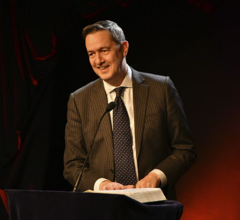
Ce blog est une initiative personnelle destinée aux gens qui s'intéressent à la spiritualité, ou à ceux qui souhaitent en apprendre plus sur la scientology, à ceux qui pensent que la liberté de conscience est un droit fondamental qui mérite d'être défendu, à mes coreligionnaires ou encore à ceux qui sont curieux...
Voici le texte de mon intervention en anglais :
Ladies and gentlemen, distinguished guests,
The Paris attacks have been a rude awakening for Europe. I won’t speak here about the way French authorities, as well as other European countries, are now dealing with the security of European citizens, unless it touches directly on religious freedom.
So the first question would be: is there something to say about religious freedom, in connection with the way European political forces deal with ISIS and terrorism in France and around? And the answer is unfortunately yes.
First of all, may I speak of circumstances preceding the attacks? I do not like to criticize the work of the police forces as they usually do good work, more often than not, and we too often stress the bad work. However, one point is too gross to be left aside. And this point is the use of police forces, as well as secret service forces, to monitor, harass and suppress wrong targets.
Indeed, for years, Western Democracies like France, Belgium and Germany, as well as repressive regimes, have been using secret services, police forces and government agencies to intensively monitor new religious movements targeted as “sects”. This has been the case for more than three decades, and has monopolized many precious resources which should have been allocated to monitor and fight extremist radicalized groups.
A very striking example is Belgium. As reported recently by Lars Bove, a renowned investigative reporter in Belgium, in his book “State Security Secrets”, Belgian State Security has been monitoring religious minorities for 40 years, with a full service dedicated to it, while it was going through a budget crisis and lacking security personnel and monetary resources. They focused on Scientology, Yogis, Evangelical Christians, and other peaceful religions or philosophies. Their investigation triggered very strong attacks against this Church for more than 30 years, leading directly to a criminal investigation that lasted for 18 years against twelve scientologists and 2 branches of the Church. These investigations were also done by the anti-terrorist cell of the Belgian Police who spent 18 years fabricating the case.
After these 18 years, 10 days ago, the Brussels Criminal Court acquitted all the defendants and strongly criticized the way the Prosecutor, State Security and the anti-terrorist cell had tried to convict a peaceful religious philosophy without any evidence of wrongdoing by the defendants. Perhaps most importantly, this case poses a problem as regards the resources that have been invested. A case like this one had to cost the Belgian State many millions of Euros and hundreds of thousands of hours of human resources, in order to perform the monitoring, the creation of the 40, 000 pages that were in the case file, the raids that have been targeting the Church, etc. whether this was performed by the State Security, the antiterrorist cell of the Belgian Police, or the office of the Prosecutor. At the same time, Belgian terrorists’ cells working with ISIS and other extremist groups slipped through the net and developed in the heart of Brussels under the radar.
The same thing occurred in Germany, where the Hamburg terror cell that played a key role in the 911 Attacks also developed under the radar while security forces were wasting resources monitoring peaceful groups.
I won’t go further into details and other examples of wasted resources that intruded on religious freedom and at the same time undermined the critical task of monitoring possible terrorists cells, but as a matter of fact, it can be said that it has existed in various European Countries, a wrong targeting that bears the weight, at least in part, of the failure to prevent the Paris attacks, or if we want to say it more gently, that did not help by allocating resources to the monitoring of peaceful religious movements while resources in general were lacking whether it was human resources or financial resources.
In terms of policy, it is obvious to me that the countries that are engaged in this kind of wrong targeting have to change their policies, stop monitoring peaceful religious groups and reallocate these wrongly allotted resources to the correct targets. According to the Belgian media, Belgium has recently reviewed its priorities in terms of national security and has determined that so-called “sects” will no longer be a priority. If this is true, it is a good sign for the country and a long overdue but correct change.
Now, as regards the way European States deal with the “after attacks” and religious freedom, there is also a lot to say.
As a matter of fact, after the Charlie Hebdo attacks, there has been a rise in anti-Semitism as well as Islamophobia in Europe, sometimes the first leading to the second and vice-versa. I can say without too much doubt that both are linked, and that the more anti-Semitism rises, the more islamophobia rises too, and the more islamophobia rises, the more anti-Semitism increases, so that everyone has a strong interest to see them both dealt with and decreasing. Moreover, the reality is that these two issues are harmful as they can reinforce feelings of exclusion, which plays into ISIS hands, as it’s easier to recruit marginalized and excluded people rather than individuals who feel well accepted and respected in their own countries.
It would be inaccurate to say that European governments do not take a stand against anti-Semitism and Islamophobia in general. Apart from occasional blunders, most governments condemn anti-religious acts as well as anti-Semitic and Anti-Islamic hate speech in their countries. Many governments have taken measures to protect Synagogues and Mosques when needed, and have employed other counter-measures to fight against the twin plagues of anti-Semitism and Islamophobia.
Civil society also has taken great initiatives all over Europe. Interfaith groups have been strongly active to fight against prejudice, educate people on Human Rights, and create a climate of tolerance and understanding amongst religious communities.
However, in my opinion, while Governmental and Civil Society both have tried to play their role in confronting anti-Semitism, Islamophobia and religious prejudice, what is lacking in many European countries is a culture of cooperation between Civil Society and governmental bodies, as well as between Civil Society and police forces on the ground. When I speak of Civil Society, I do include the religious groups themselves, religious communities of all faiths and their ministers.
It is not a secret that ISIS recruitment in Europe is done amongst a population which is not in itself the most religious one, but they are recruiting their best slaves amongst already criminal individuals, whether in districts where criminality is high or directly in prisons. The answer by governments is, of course, investigation and measures to facilitate the work of police and intelligence services in order to identify potential terrorists, which is very understandable. However, this sometimes gives the impression that Muslims in general are targeted, whether it’s true or not. Moreover, while these measures can be necessary in order to protect European citizens, this does not resolve the factor of exclusion added to that of criminality, and can even reinforce both of these by creating a climate of general repression with no tackling of the underlying issues.
It seems to me that the best way to tackle these issues would be to involve Civil Society, including churches, their ministers, interfaith groups and the like, much more on the ground. Having police working with religious leaders and willing NGOs in the problematic districts would enhance the response of the population to what is aimed at as regards cutting the power of ISIS amongst young criminals. Even organizing coordination meetings at local levels, between local authorities and any civil society group that has the goodwill to act, would lead to a greatest impact of all initiatives to have anti-religious prejudice combatted and overcome.
Unfortunately, many European governments (it may be less true in North-European countries as well as in UK) have a culture of separating their activities from those of NGOs and goodwill grassroots initiatives. They have embraced the concept that a strong government must not mingle with religions (except when they are big majority religions) or with human rights groups, because the government is the one who needs to control everything without asking the help of Civil Society. This monopolistic attitude is wasting some of the most driving forces in Europe, and may discourage the goodwill of citizens who would otherwise be much more active in the field.
The result is also a feeling of being excluded by the State for many members of religious minorities, a reinforced ostracism towards Muslims at large, a rise in religious tension between communities, and a rise of hostility against religions in Europe, affecting religious freedom in many ways.
This can change. More than a change in policy, I think that an exchange of good practices with European governments, proposals through diplomatic lines to discuss how cooperation between civil society, religious groups and governments can help create an inclusive climate for all denominations. This kind of an inclusive exchange would combat prejudice and exclusion as well as criminality, the three key elements in the breeding ground for ISIS recruitment.
In my opinion and the opinion of members of other religious groups I work with, a close and constructive alliance between Civil Society organizations and religious communities vis a vis governments is key to improving the environment of religious tolerance and security in Europe.
Cette décision est la conclusion d'une enquête de plus de 18 ans menée par les services du procureur, d'un procès public qui a duré 2 mois, et de 3 mois supplémentaires de délibéré que les juges ont mis à profit pour tout examiner à nouveau.
Elle est certainement l'une des plus intelligentes, des plus motivées et des plus poussées qu'il m'ait été donné de lire.
Je vous en livre ici quelques extraits qui résument les constatations du tribunal.
Sur les faits et les infractions reprochés, pour lesquels les juges ont tenté de manière extrêmement poussée et sans aucune complaisance de voir s'ils pouvaient être constitués :
p157
« Comme exposé précédemment, le tribunal a tenté en vain, tant au cours des longues séances d'interrogation des prévenus lors de l'instruction d'audience, que par l'audition de témoins, par ses demandes de précisions formulées tout au long des débats et en particulier lors du réquisitoire oral du ministère public, puis lors de l'examen minutieux et détaillé du dossier répressif, et ce compris les pièces à conviction au greffe, de comprendre les poursuites intentées par la partie poursuivante à l'égard des prévenus. »
Sur l'enquête et ses errances :
P147
« L'analyse qui a été faite tant des préventions d'organisation criminelle et d'association de malfaiteurs, dont il a déjà été question, que certaines autres dont il sera question ci-après d'une part, mais également et surtout le réquisitoire oral que le ministère public a exposé pendant une dizaine d'heures d'autre part, laissent apparaitre qu'en réalité, ce qui a été visé, ce ne sont pas tellement les comportements infractionnels individuels de chacun des prévenus, mais que de manière générale ce qui semble poser problème à la partie poursuivante, c'est l'idéologie ou la philosophie constituée par l'enseignement de Monsieur Ron Hubbard au travers de la scientologie.
p 148
« En d'autres termes, avant d'être le procès de chacun des quatorze prévenus poursuivis devant le tribunal de céans, c'est en priorité le procès de la scientologie, au sens doctrinaire du terme, que la partie poursuivante a entendu mener. »
p149
« ... Il va de soi que cette manière d'articuler son réquisitoire ne laisse planer aucun doute quant au fait que, dans l'esprit de la partie poursuivante, ce qui est en premier lieu visé, c'est la pensée scientologue elle-même, que le tribunal devrait sanctionner au travers de la condamnation des prévenus.
Les constatations de la Sureté de l'Etat, après analyse de certaines pièces du dossier, ne vont d'ailleurs pas dans un autre sens. »
p150
« Or, les éléments qui viennent d'être exposés démontrent, selon le tribunal, que si les prévenus sont poursuivis dans la présente cause, c'est d'abord parce qu'ils sont des adeptes de la scientologie, ce dont ils ne se sont d'ailleurs jamais cachés. Le ministère public est bien évidemment libre de la manière dont il entend mener les poursuites et de la façon dont il estime devoir présenter un dossier au tribunal, mais il n'en demeure pas moins que cet a priori, sous l'angle duquel les causes ont été exposées au tribunal, est de nature à obliger les prévenus à devoir défendre en premier lieu la doctrine à laquelle ils ont adhéré, avant même de pouvoir envisager leur défense relativement aux faits et comportement concrets qui leur sont reprochés. A l'instar d'un prêtre catholique accusé de pédophilie ou d'escroquerie aux aumônes, ou d'un terroriste, responsable de l'un ou l'autre attentat, dont les comportements criminels ne se jugeraient pas en fonction des enseignements de la Bible ou du Coran ou de certains de leurs passages, parfois pourtant très explicites, les actions des prévenus ne peuvent être considérées comme infractionnelles uniquement sur la base des écrits idéologiques et doctrinaux de leur croyance, à charge pour eux de démontrer le contraire. Une telle exigence reviendrait à imposer aux prévenus de prouver leur innocence, le ministère public se contentant de démontrer que le caractère d'incitation au crime ou au délit, contenu, selon lui, dans les écritures scientologues, suffit à présumer de la culpabilité des prévenus, les quelques éléments concrets cités au dossier ne faisant quant à eux qu'étayer cette présomption de culpabilité. »
p 156
« En l'espèce, comme il a été exposé ci-dessus, la partie poursuivante (et les enquêteurs, clairement animés d'un même a priori négatif) entendait voir juger avant toute chose, la doctrine même de la scientologie, développée par Monsieur Ron Hubbard, les prévenus poursuivis n'étant, dans cette optique, que le véhicule nécessaire pour y accrocher les préventions considérées comme présentes au sein de l'enseignement scientologue. »
(…)
« De par cette approche, les prévenus furent, la plupart du temps, présumés coupables de par le simple fait d'être membre actif au sein de leur Eglise. »
Le tribunal a finalement déclaré l'ensemble des poursuites irrecevables pour "atteinte grave et irrémédiable au droit à un procès équitable".
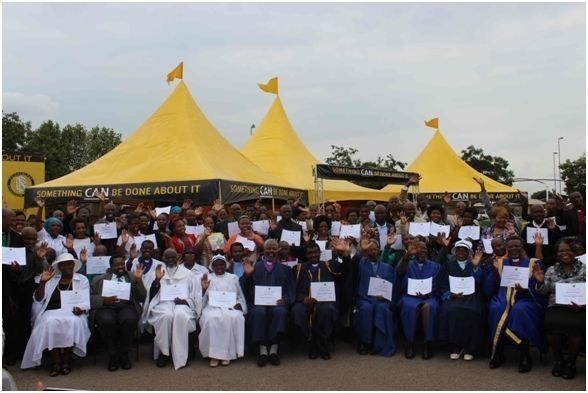
Nombre d'entre eux, en retournant servir leur congrégation, vont maintenant ouvrir leurs propres groupes de ministres volontaires pour former d'autres personnes à ces mêmes techniques.
Un bel exemple d'entraide entre les religions. Pour en savoir plus sur les Ministres Volontaires de l'Eglise de Scientologie : http://www.scientologie.fr/faq/scientology-in-society/what-are-volunteer-ministers.html
Ici, vous avez en vidéo des extraits des discours prononcés par :
Sandra Rincon, conseillère du Ministre de l'intégration sociale de la Ville de Bogota ;
Le Capitaine John Galindo, Directeur des opérations du Circle of Aid Technicians of Colombia (CINAT)
Le Lieutenant-Colonel Anstrongh Polania, chef de département au Ministère de la justice et Directeur de l'Ecole des Droits de l'Homme et du Droit humanitaire international ;
Le Lieutenant-Colonel Edgar Rojas, commandant des opérations en zones rurales de la Police Nationale colombienne ;
Le Lieutenant-Colonel Carlos Pena, Coordinateur pour l'éducation anti-drogue du Département anti-narcotiques colombien.
Ca vaut le détour.
L'article est en anglais, mais pour ce qui est du thème plus particulier de ce blog, je vous traduis un extrait de l'échange entre Jeremy et Cyprien :
Le point suivant de la conversation est inattendu, lorsque Cyprien annonce "Je suis scientologue. Tu connais la scientologie ?" Je réponds oui, je sais tout ce que je veux savoir sur la scientologie. "Ok, je comprends très bien. Peut-être as-tu besoin d'un peu d'information". Non, je réponds. J'ai toute l'information dont j'ai besoin, merci.
"Une chose que je vais te dire, Jeremy, c'est que si tu regardes sur Internet, tu trouveras toutes sortes de rumeurs et beaucoup de mensonges. La meilleure manière de connaitre n'est pas d'écouter ce que je te dis ou de regarder sur Internet, mais de lire un livre ou de regarder un DVD et de te faire ta propre idée. Quoi qu'il en soit, ces choses m'ont aidé beaucoup pour surmonter la peur de la scène. J'avais tout essayé quand j'étais jeune. Rien ne m'a aidé comme la scientologie m'a aidé. C'est rationnel. Ce n'est pas du mysticisme. Il y a un respect de la croyance des autres. La règle d'Or est 'ne crois pas ce que je te dis, contente-toi d'essayer par toi-même'".
Comment, je demande, un ensemble de croyances peut-il contrôler la physiologie et la neurologie d'un artiste de scène ? "C'est exactement le point. Ce n'est pas seulement une question physique, parce qu'il y a quelque chose au delà du cerveau qui est le vrai toi."
Voilà toute l'interview :
Et de deux...
L’association scientologue avait soutenu devant le juge qu’en 2009, le fait pour le parquet de requérir sa dissolution était non seulement illégal, mais constituait une faute lourde pour laquelle l’Etat devait être condamné. C’est maintenant chose faite puisque la Cour d’appel de Paris lui a donné raison : « le ministère public qui, aux termes de l’article 31 du code de procédure pénale “exerce l’action publique et requiert l’application de la loi”, se doit en toutes circonstances de maîtriser les textes de loi et de connaître les évolutions ou modifications du droit positif en vigueur ; que cette déficience caractérisée du parquet, quand bien même le tribunal, faisant une exacte application de la loi en vigueur n’a pas prononcé la dissolution de l’Association Spirituelle de l’Eglise de Scientologie Celebrity Centre, caractérise la déficience du service public de la justice à remplir la mission dont il est investi. »
L’Etat a été aussi reconnu coupable de déni de justice pour avoir violé le droit de l’association et de certains de ses membres à recevoir justice dans un délai raisonnable, et condamné à verser 35 000 euro à l’association et à ses membres.
Il s’agit de la deuxième victoire judiciaire du mois en France pour l’Eglise de Scientologie, puisque la semaine dernière, l’association UNADFI a été condamnée par la Cour d’appel de Paris à verser 21 000 euro à l’Association Spirituelle de l’Eglise de Scientologie- Celebrity Centre pour abus de droit, pour s’être constituée et maintenue illégalement et en toute mauvaise foi comme partie civile contre l’Eglise dans la même affaire (voir ici : http://www.ericroux.com/Assignee-par-l-Eglise-de-Scientologie-l-UNADFI-condamnee-par-la-Cour-d-appel-de-Paris_a299.html).


Communiqué – 20 novembre 2015 – Pour diffusion immédiate
L’Association Spirituelle de l’Eglise de Scientologie-Celebrity Centre (ASES-CC) et deux de ses membres avaient assigné l’association UNADFI (Union Nationale des Associations de Défense des Familles et de l’Individu) devant la juridiction parisienne, estimant que cette association avait commis un abus de droit, en se portant partie civile contre l’Eglise dans un procès qui s’était déroulé en 2009 pour la première instance et en 2011 pour l’appel. L’Eglise de Scientologie estimait que cette constitution de partie civile abusive avait pollué les débats judiciaires, et que la mauvaise foi de l’UNADFI était caractérisée par le fait que cette dernière savait pertinemment bien qu’elle était irrecevable, mais que son seul but était de nuire à l’Eglise et d’influencer illégalement les débats judiciaires en cours.
Dans son arrêt du 20 novembre 2015, la Cour d’appel de Paris a donné raison à l’Eglise de Scientologie en reconnaissant qu’il était « certain que la présence de l’UNADFI a influencé le déroulement du procès et le fond des débats », et en jugeant que la mauvaise foi de l’UNADFI était établie tant dans sa constitution de partie civile initiale devant le Tribunal de première instance que lors de sa présence devant la Cour d’appel en 2011.
Ainsi la Cour d’appel de Paris a jugé que :
« L’UNADFI a fait preuve d’une mauvaise foi manifeste en se constituant partie civile sur le fondement de l’article 2-17 du code de procédure pénale dans l’instance pendante devant le tribunal correctionnel et qu’elle a de ce fait commis un abus du droit d’ester en justice. (…)
Il s’ensuit qu’en choisissant de tels fondements qu’elle savait inévitablement voués à l’échec, l’UNADFI a fait preuve de mauvaise foi et a abusé de son droit d’agir en justice. Sa mauvaise foi est au demeurant parfaitement illustrée par les déclarations faites par Madame Catherine Picard, le 26 novembre 2009, à l’occasion d’un colloque, aux termes desquelles elle a affirmé que l’UNADFI ferait appel du jugement du 27 octobre 2009 “même si sa demande sera rejetée puisque les faits sont antérieurs à la loi About-Picard. A priori nous ne pouvons pas nous porter parties civiles. Mais pour l’exemple et pour le symbole, nous irons en appel.” »
L’UNADFI a été condamnée à verser 21 000 euro à l’ASES-CC et à ses membres.
Pour le Président de l’Union des Eglises de Scientologie de France, Monsieur Eric Roux : « Cette décision est non seulement très juste, mais elle a des incidences à plusieurs niveaux. D’abord, elle montre que la présence illégale de l’UNADFI dans un procès qui a mené à la condamnation de l’ASES-CC a faussé et pollué les débats, ceci posant le problème de l’équité de la procédure. Ensuite elle rappelle à l’UNADFI qu’elle n’est pas au dessus des lois, et marque la fin d’une impunité de laquelle l’UNADFI pensait pouvoir bénéficier ad vitam aeternam. Enfin, cette décision pose la question du gaspillage de l’argent public que représentent les centaines de milliers d’euro versés à l’UNADFI chaque année par l’Etat. Cet argent du contribuable peut être utilisé illégalement (comme en l’espèce) afin de nuire à des mouvements spirituels et religieux pacifiques, au lieu d’être donné à des associations qui s’occupent des véritables problèmes de notre société. »
A mes cotés sont intervenus l'imam de la communauté musulmane Ahmadiyya de Bruxelles, Asad Majeeb, et Maryam Barandi, représentante de Femyso (Forum of European Muslim Youth and Student Organizations : Forum des organisations étudiantes et de jeunesse musulmanes européennes).
Nous avons tous insisté sur le fait que les religions sont toutes porteuses d'un message de paix, et que ceux qui souhaitent utiliser une religion pour justifier leurs actions terroristes sont en fait des criminels sans religion. Nous avons rappelé que des hommes souffrent du terrorisme et de l'oppression dans le monde entier, et que notre vigilance et nos actions pour la paix ne doivent pas retomber lorsque la vie semblera "reprendre son cours".
L'imam Asad Majeeb a finalement transmis un message du leader mondial de la Communauté musulmane Ahmadiyya, Hadhrat Mirza Masroor Ahmad : "Au nom de la Communauté musulmane Ahmadiyya dans le monde entier, je tiens à exprimer mes plus sincères sympathies et condoléances à la nation française, son peuple et son gouvernement, à la suite des infâmes attentats terroristes qui ont eu lieu à Paris. Cette attaque brutale et inhumaine doit être condamnée dans des termes les plus fermes possibles. Je tiens également à rappeler que toutes les formes de terrorisme et d’extrémisme sont complètement contraires aux vrais enseignements de l’Islam. Le Saint Coran enseigne que tuer ne serait-ce qu’un seul innocent est semblable à tuer toute l’humanité. Ainsi, en aucun cas, le meurtre peut être justifié et ceux qui cherchent à justifier leurs actes haineux au nom de l’Islam ne font que le diffamer de la pire façon possible. Nos sympathies et nos prières sont avec les victimes de ces attaques et tous ceux qui ont été laissés en deuil ou affectés d’une manière quelconque. Que Dieu Tout-Puissant accorde la patience à tous et j’espère et je prie pour que les auteurs de cet acte maléfique soient rapidement traduits en justice."
Quelques photos de l'office :
Les scientologues français assurent les autorités en charge de la gestion de crise de leur soutien actif en ces moments extrêmement difficiles.
Après cette tragédie qui a endeuillé notre pays, l’Eglise s’associe à tous les efforts tendant vers l’unité, la fraternité et le refus de la soumission face à une oppression d’une telle ampleur.
Puissent tous les hommes et femmes de bonne volonté, quelles que soient leurs croyances ou leurs convictions, joindre leurs efforts pour restaurer la paix et la santé d’esprit dans notre pays.
Eric Roux
Président
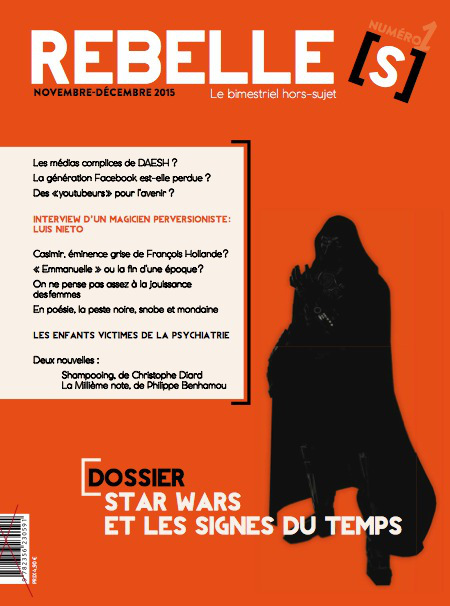
Après quelques échanges d’email polis, M. Bunuel a conclu que ce n’était pas de son ressort (je ne sais alors ce qui serait « de son ressort »), et le redac chef du Grand Journal, Laurent Kouchner, a refusé toute invitation sur le plateau ou toute interview pour « des raisons éditoriales ». Plus que dommage.
J'ai vu Going Clear. Ce qui est véritablement dangereux dans ce genre de prétendus documentaires, c'est qu'on confond information et propagande, ce qui est une forme sournoise de manipulation du spectateur. Alex Gibney n'est pas un journaliste lorsqu'il fabrique son documentaire, et ne s'astreint à aucune déontologie. Il est de manière évidente devenu un propagandiste anti-scientologue, qui aujourd'hui est entré en campagne contre la religion scientologue.
Gibney a prétendu en se répandant dans les médias que l’Eglise de Scientologie aurait refusé de répondre sur le fond. La vérité est tout autre. Gibney a (et c’est lui qui l’a avoué) tourné pendant deux ans son documentaire en cachette. Lorsque l’Eglise l’a appris, elle lui a écrit à 14 reprises officiellement pour proposer de répondre aux allégations qu’il allait faire dans son documentaire. Sans réponse. De nombreuses personnes scientologues se sont proposées pour répondre aux allégations de son film, incluant les dirigeants de l’Eglise de Scientologie Internationale, et des membres des familles des personnes dont on savait (et pour cause, vous le comprendrez après) qu’elles allaient fournir leurs « témoignages ». Elles étaient des témoins de première main. Refus de Gibney d’entrer en contact avec ces personnes. Pourquoi ne voulait-il pas les entendre ? Il l’a dit lui-même : « Nous avons eu l’histoire que nous voulions ».
Les personnes qu'il interviewe pour donner du cœur à son « documentaire » sont toutes des militants anti-scientologues professionnels, qui en outre en ont fait leur gagne-pain après avoir été renvoyées de l'Eglise parfois pour des raisons graves de criminalité avérée. Alors que Gibney prétend dans 20 minutes qu’il aurait mis deux ans pour « convaincre » « d’anciens membres » de parler à visage découvert dans son film, on s’aperçoit que toutes les personnes qu’il a interviewées sont le même petit groupe qui depuis des années fait le tour des « talk shows » et des tabloïdes pour déblatérer sur leur ancienne religion. Ils ont peaufiné ensemble leur discours pendant des années, et Gibney n’a fait que reprendre les mêmes, qui profèrent les mêmes « horreurs » inventées et créées dans le but avoué de nuire à la scientologie et aux scientologues.
Toutes les allégations faites par Gibney et son équipe d’acteurs ont déjà été démontées en détail et de manière très documentée avant qu'il ne fasse son film, mais Gibney, contrairement à ce qu'il prétend, a choisi d'ignorer toutes les preuves qui contredisaient sa propagande. Certains de ses « témoins » ont tenté de faire croire à ces mêmes allégations devant les tribunaux américains et se sont vus condamnés à payer des dizaines de milliers de dollars à L’Eglise pour procédure abusive, après que leurs mensonges aient été percés à jours par la justice. Mais Gibney, qui le savait, a oublié de le préciser quand il leur faisait répéter ces mêmes mensonges devant la caméra.
Malheureusement, cela me fait penser à la propagande antimaçonnique telle qu'elle a été faite par Riche et Rivière dans leur film Forces Occultes en 1943. On utilise des procédés "artistiques" pour diaboliser un mouvement, en injectant quelques éléments "vrais" pour tenter d'apporter du crédit au reste des allégations, ce qui permet après de justifier ensuite toutes les attaques à l'encontre du mouvement, qu'il soit philosophique ou religieux. C'est extrêmement dangereux et il est dommage que Canal Plus souscrive à cette propagande, sans même chercher à équilibrer les débats en donnant la parole à l'Eglise.
Bien sûr Gibney, après avoir prétendu que l'Eglise ne supportait pas la critique, se plaint partout qu'il est critiqué personnellement par les scientologues. Il devrait regarder la poutre qu'il a dans l’œil avant de voir la paille dans celui de son voisin, et apprendre à se remettre en question. Sa manière de fonctionner est bien résumée par Lawrence Wright, l’auteur du livre éponyme dont est tiré Going Clear : « La vérité est un de ces termes subjectifs par lesquels il est inutile de se sentir lié ». Et Gibney de préciser que pour Going Clear : « J’ai entièrement fait confiance à Larry » (Larry = Lawrence Wright). On comprend mieux.
Sur le fond comme sur la forme, la scientologie n'a rien à voir avec ce que décrit Gibney dans son film. C'est une fiction que certains peuvent trouver intéressante, mais il ne faut pas s'y tromper, c'est de la propagande, pas de l'information. La vie des scientologues et de l'Eglise est faite de succès et de bonheur, et la spiritualité profonde qui est la matière même de la scientologie est aux antipodes de la vision malade de Going Clear.
Finalement, je plains Alex Gibney, lui qui n’hésite pas à déclarer « les scientologues sont comme des vampires » dans Libération (merci pour moi et les milliers de scientologues français qui heureusement ont le sens de l’humour), qui pleure dans les médias qu’il serait « harcelé » par les scientologues (tout en reconnaissant qu’il n’a jamais eu une quelconque menace contre lui, va comprendre), ne supporte pas que l’Eglise se permette de répondre à sa « vérité absolue et qu’il est interdit de contester », tout en se prétendant un chantre de la liberté d’expression, et pleure parce que ses sources seraient « discréditées » par la scientologie. Quand à la jalousie évidente qu’il exprime lorsqu’il parle de Tom Cruise ou John Travolta, elle est triste et sent le désespoir intérieur.
Pendant ce temps, tandis que le chien aboie, l’Eglise de Scientologie et la philosophie religieuse qu’elle incarne et dissémine continue d’intéresser de plus en plus de gens. L'ouverture ces derniers mois de plusieurs églises "idéales" de scientologie à Bâle (http://www.ericroux.com/Inauguration-de-la-nouvelle-eglise-de-scientologie-ideale-a-Bale_a283.html), Bogotá (http://www.ericroux.com/Inauguration-de-la-nouvelle-eglise-de-scientologie-ideale-a-Bogota-Colombie_a286.html), Tokyo (http://www.ericroux.com/Japon-inauguration-d-une-nouvelle-Eglise-de-Scientologie-ideale-a-Tokyo_a289.html) et la semaine dernière à Milan (http://www.ericroux.com/Italie-la-plus-grande-Eglise-Ideale-de-Scientologie-au-monde-inauguree-a-Milan_a293.html) pour répondre à la demande en est une parfaite illustration.
A noter que n'en déplaise à Gibney et Canal, la scientologie n'est pas uniquement reconnue comme une religion aux Etats-Unis, mais aussi tout autour de nous, en Espagne, au Royaume Uni, au Portugal, en Italie, en Suède, en Hollande, etc. Mais bon, faut croire que pour Canal et Gibney, tous ces gens-là sont des idiots...
Pour une documentation très fournie sur la propagande d’Alex Gibney, incluant documents originaux et vidéos (en anglais), rendez-vous sur http://www.freedommag.org/going-clear/
Communiqué de presse
Monsieur David Miscavige, Président du Conseil d'Administration du RTC (Centre de Technologie Religieuse), arrivé directement d'Angleterre où il a inauguré l'Eglise Idéale de Saint Hill le 18 octobre dernier et célébré le 31e anniversaire de l'Association Internationale des Scientologues le 23, a innauguré cette nouvelle Eglise Idéale de Milan.
« Je suis honoré au plus haut point de me joindre à vous en ce jour qui dépasse tous les jours qui ont précédé. Car s'il est une cité destinée à devenir le siège d'une Eglise Idéale, c'est bien Milan. Cette cité de splendeur multiséculaire, tournée vers le futur ; cette cité de seigneurs et de gloire ; cette cité d'une incroyable énergie et dont la créativité fait partie de son âme ; cette cité véritablement idéale. Effectivement, nous célébrons une Eglise aussi idéale qu'il est possible de l'être. Et donc une Eglise qui est l'incarnation vivante de cette maxime de Ron Hubbard : « Le soleil ne se couche jamais sur la Scientologie ». Aussi, ce bâtiment est un hymne au futur, un hymne à la renaissance grâce à la Scientologie, une renaissance de la vie éternelle ».
La plus grande organisation de Scientologie idéale au monde comprend un bâtiment de près de 10 000 m² autour d'une cour dégagée de 2000 m², le tout sur un terrain de 0,6 hectare. Proéminente à l’extrême, la nouvelle église se dresse au bord de l'avenue Fulvio Testi qui mène au célèbre parc de Milan Nord. L'ensemble couvre un bloc entier dans le quartier en pleine expansion de Bicocca.
Plusieurs personnalités italiennes travaillant en étroite collaboration avec l’Église pour la création d'un monde meilleur se sont jointes aux scientologues lors de cette inauguration. Ainsi, se sont succédés à la tribune Monsieur Gianfranco Tucci, Conseiller municipal de Milan, Monsieur Marcello Arena, Directeur des activités sportives de la police de Milan, Monsieur Carlo Proserpio, membre du Conseil exécutif du Conseil national des associations commerçantes de Milan, Monsieur Gelek Yakar, Président du Centre Mandala pour la préservation culturelle du Tibet et Monsieur Fabio Bergomi, du Conseil exécutif pour le volontariat, pour la zone métropolitaine de Milan.
M. Tucci a souhaité la bienvenue à l’Église dans ses nouveaux quartiers : "le fait d'avoir une Église de Scientologie d'une telle dimension dans notre quartier, non seulement intègre nos réalités sociales et culturelles multiples, mais sert de point de référence et de lieu de rencontre pour tous ceux voulant améliorer la qualité de vie pour les gens qui y vivent. Et pour cela, vous avez mon soutien durable et tous mes remerciements."
M . Arena a parlé du partenariat avec l’Église pour une large diffusion de l'information sur ce que sont les drogues dans toute la cité : « L'initiative pour un Monde Sans drogue de l’Église de Scientologie m'a amené à avoir une très haute considération pour les scientologues. Ce que vous faites est remarquable. Et l'union entre les forces institutionnelles et les forces de bénévoles est ce qui va amener une véritable amélioration de la société. Dans cet esprit, j'aimerais beaucoup beaucoup pouvoir utiliser votre auditorium pour mes prochains congrès des corps de police locales et mes prochains événements. J'espère que cela ne vous dérange pas si nous venons ici tout le temps ! »
Puis M. Yakar a pris la parole pour souligner l'impact de Ron Hubbard, le fondateur de la Scientologie, sur la tolérance et le respect mutuel : « l’œuvre de M. Hubbard a été préservée, lue et écoutée par des millions de personnes sur cette planète. Nous devons le remercier pour ce qu'il a fait, pour sa sagesse. Ses mots ont laissé une empreinte sur l'âme de tant d'individus. Pour moi, je ne peux que le remercier pour avoir inspiré les scientologues et ainsi avoir suscité un mouvement international pour apporter le respect pour chaque être vivant, non seulement en Italie, mais dans le monde entier. »
Ensuite, M. Proserpio a déclaré avoir trouvé, avec les membres de l’Église de Scientologie de Milan, des personnes qui partagent sa vision pour la communauté et déterminées à fournir le travail nécessaire pour la mettre en œuvre : « Dans cette nouvelle Église, il y a des gens qui souhaitent changer la société pour l'améliorer. Des gens qui font un travail effectif pour venir à bout de la drogue et pour recouvrer ces valeurs morales que chacun d'entre nous reconnaît comme justes et importantes. Alors, j’espère que vous continuerez à m'aider à créer une zone idéale dans cette zone de Milan, une zone dans laquelle tout le monde peut vivre en se respectant les uns les autres, en s'aidant et en prospérant. Alors merci pour ce que vous avez fait et pour ce que vous allez faire. »
Finalement, M. Bergomi a parlé du travail de PROCIVIDOS, les volontaires de la protection civile de la communauté scientologue, appelés les Ministres Volontaires de Scientologie, qui répondent aux besoins d'urgence de leurs communautés : « Quand la rivière Seveso est sortie de son lit en novembre dernier, vous avez immédiatement réagi à la première alerte et vous êtes arrivés sur les lieux dans le milieu de la nuit. Et vous l'avez fait avec cette esprit rayonnant qui vous pousse à tout faire pour aider les autres. Ce qui est la raison pour laquelle je vous suis extrêmement reconnaissant de participer au mouvement des volontaires de notre ville de Milan. »
L'Eglise Idéale de Milan reflète parfaitement la grandeur de cette ville légendaire – un exemple époustouflant de style et un modèle pour les organisations de Scientologie en Italie et dans le monde. Une élégance intemporelle émane de son marbre, de ses boiseries et de son acier inoxydable avec des touches de rouge qui rappellent les Ducati et Ferrari fabriquées dans la région. L'ensemble comprend un vrai restaurant et un café. La chapelle de Milan est la plus grande de toutes les Eglises idéales et peut accueillir les services du dimanche, les mariages de même que tous les événements organisés par des scientologues ou non scientologues.
Son vaste Centre d'Information Publique présente plus de 500 films montrant les croyances et pratiques de la Scientologie ainsi que la vie et le leg de son fondateur, Ron Hubbard. Le Centre d'Information offre une vue détaillée des nombreux programmes humanitaires parrainés par l’Église. Ces derniers comprennent une campagne mondiale d'éducation aux droits de l'Homme, une campagne d'éducation aux dangers de la drogue, un réseau de centres d'apprentissage et d'alphabétisation ainsi que le programme des Ministres Volontaires, la plus grande organisation indépendante de secours d'urgence.
L'Eglise Idéale de Milan comprend également de nombreuses salles de séminaires et des salles de cours, en plus d'un étage entier dédié à l'audition de Scientologie (le conseil pastoral).
--------------------------------------------
L’Église de Scientologie à connu une expansion plus grande au cours des 10 dernières années qu'au cours des 50 années précédentes. Les 10 premiers mois de 2015 ont été marqués par des accomplissements historiques pour la religion et ses programmes humanitaires, avec notamment :
- l'inauguration de l’Église idéale de Saint Hill, le 18 octobre, le lieu où Ron Hubbard a fait des percées majeures pour ouvrir les niveaux les plus élevés du Pont pour la Liberté Totale ;
- L'ouverture de nouvelles retraites religieuses à Los Angeles les 3 et 10 octobre, juste à quelques pas de l'organisation avancée de Los Angeles ;
- la mise en service d'un magnifique centre Narconon à Ojai, en Californie, spécialement destiné à la réhabilitation des artistes et leaders touchés par la drogue et l'alcool ;
- l'ouverture le 12 septembre d'un Narconon continental pour l'Amérique latine à Villa Victoria, au Mexique, pour apporter la technologie de réhabilitation des drogues à travers les 21 pays d'Amérique latine.
- l'inauguration le 5 septembre de Narconon Royaume Uni en tant que centre de réhabilitation et d'entraînement, situé dans le Sussex au sud de l'Angleterre ;
- l'ouverture également le 5 septembre du Narconon continental pour l'Europe au Danemark, près du lac Arreso ;
- l'inauguration le 8 août de l’Église idéale de Scientologie de Tokyo, dans le cœur de la ville, à Shinjuku
- L'ouverture le 18 juillet du Bureau de liaison continental pour le Royaume Uni à East Grinstead, en Angleterre ;
- l'inauguration le 11 juillet du Centre d'information sur la scientologie dans la ville des quartiers généraux de la Scientologie, à Clearwater en Floride, pour rendre disponibles les programmes humanitaires parrainés par l'Eglise à l'ensemble de la communauté ;
- l'ouverture de l’Église de Scientologie idéale de Bogota en Colombie le 5 juillet ;
- l'ouverture en avril de l’Église de Scientologie idéale de Bâle, à la convergence de 3 frontières (Suisse-France-Allemagne).
D'autres ouvertures sont prévues en Australie, en Afrique, en Europe et en Amérique du Nord avant la fin de l'année.
Quelques photos de la nouvelle église à Milan :
Mercredi soir, j'étais invité sur la Une (RTBF) en Belgique pour commenter une émission sur la scientologie (émission fabriquée à partir d'un melting pot d'interviews de détracteurs toutes plus vieilles les unes que les autres, et dont la fausseté a déjà été démontrée des dizaines de fois, mais au moins, ils ont eu la bonne idée de me donner la parole, ce dont je les remercie). En voici un extrait, tout à la fin de l'émission :
L'Eglise de scientologie y tenait plusieurs stands, dont je partage ici avec vous quelques photos :
Ce numéro contient un dossier sur "la réalité des sectes" qui sort complètement de l'ordinaire et des poncifs habituels sur le sujet.
D'excellents articles par d'excellents auteurs, journalistes, essayistes, avocats, et une surprise qui n'en sera plus une dans une instant :

Plusieurs dignitaires japonais se sont joints à David Miscavige, actuel leader ecclésiastique de la religion scientologue, lors des discours d'ouverture. Entre autres :
Sur une touche plus personnelle, M. Saïto a ajouté, "les scientologues apportent de l'aide à des millions de gens. Mais je peux aussi vous dire comment les scientologues ont apporté de l'aide à une personne : moi. Parce que suite au tremblement de terre et au tsunami qui ont balayé ma ville, vos membres, les ministres volontaires, s'y sont rendus pour déblayer les débris de notre maison effondrée dans l'espoir d'y retrouver les membres de notre famille qui pouvaient y être. Nous avons été tellement touchés par leur attitude sincère ! Ils ont montré une telle habileté et une telle discipline. Votre attitude humanitaire touchait l'âme."
"Vos informations m'ont donné la politique solide dont j'avais besoin", a déclaré M. Furubo. "Notre assemblée a officiellement choisi de collaborer avec votre organisation. Maintenant, nous avons travaillé jusqu'à ce jour, et il n'y a pas plus de magasins qui vendent des "herbes légales" au Japon, grâce aux scientologues !" Il a ajouté : "Je tiens à vous dire du fond de mon cœur que votre contribution à notre communauté est magnifique. J'admire le sens du devoir que vous démontrez dans votre conduite, dans vos familles, dans la société et dans le monde pour qu'il aille dans une meilleure direction. 'Wa' est la loi de respect mutuel et de coopération qui traverse notre culture japonaise. Et cette Eglise Idéale et ce qu'elle promet incarnent ce que le 'Wa' est".
Le 14 juin, j'étais invité à intervenir lors de la conférence "laïcité et diversité religieuse" organisée par le CLIMS (Centre de liaison et d'information concernant les mouvements spirituels) dans le centre protestant John Knox à Genève.
M. Maurice Gardiol, Président du Conseil de l’aumônerie œcuménique des prisons, trésorier de la Plateforme interreligieuse de Genève et Président de la Commission 1 (principes généraux) de la Constituante de Genève,
M. Jean-Claude Kolly, Président du CLIMS,
Le Révérend William McComish, ancien doyen de la Cathédrale de Genève,
M. Ireneo Namboka, Conseiller aux des Nations unies pour la formation et la recherche,
Me Yves Nidegger, Conseiller National
M. Hafid Ouardiri, Directeur de la fondation de l'Entre-connaissance,
M. Thierry Bécourt, Président CAP LC,
M. Jacques Dubreuil, Président de l'Omnium des libertés,
M. Jean-Luc Martin Lagardette, journaliste et essayiste.
Ce chapitre que j'ai écrit est le dernier chapitre du livre. Le premier, qui suit le rapport Religare, est écrit par Heiner Bielefeldt, Rapporteur Spécial de l'ONU sur la liberté de religion et de conviction, et nous ne sommes que deux français à avoir écrit un chapitre, dont Frédérique Ast, juriste senior auprès du Défenseur des Droits.
La référence du livre est ISBN: 978-1-4724-5346-4, et vous pouvez vous le procurer ici : http://www.ashgate.com/isbn/9781472453464
Voici le texte de mon chapitre :
It is not an easy task to write a comment on such a carefully written and well presented report as that covered by the topics of the Religare Project. Criticizing is not an option when you have nothing to criticize, and paraphrasing would be useless.
So the only remaining option is to see if some areas of concern could benefit from additional perspectives, and see if in those areas of concern that are evolving every day – this being evidence that these topics are living topics – whether some new developments may be analysed in order to supplement the analysis and recommendations of the project.
Indeed, I think that in relation to the four areas of recommendation of the project, and within the scope of the two major concepts developed – or chosen – as the normative framework, ‘Inclusive State neutrality’ and ‘justice as even-handedness’, some recent developments, at national, European and international level, shed new light on the way these topics should be dealt with.
For analysing these new developments, I thought not to restrain myself to a national or European level, as it appears that all the countries studied during the project are subject to the international law contained in the International Covenant on Civil and Political Rights [ICCPR] of the United Nations, particularly article 18 on Freedom of Thought, Conscience and Religion.
It is said in the conclusions of the report that ’The right of minorities – whether religious or other – to religious freedom comes under pressure if the majority in a diverse society puts the imprint of its own conception of the “good life” upon legislation. Freedom of religion and belief is also and should remain, if not primarily, a fundamental right of minorities’, I will focus on the rights of minorities, as this is always the most crucial concern when human rights are involved, and as seen throughout the world, specifically when religious freedom is at stake.
I will summarize the following new developments that occurred during or since the project research was conducted:
• First of all, I will discuss the new EU guidelines on the promotion and protection of freedom of religion or belief which have been adopted by the European Council on 24 June 2013. These guidelines take a very strong position on behalf of the EU institutions on this subject, even if they were initially intended for application to EU external actions and are not legally binding for European Union members.
• I will then cover some recent decisions either by the European Court of Human Rights, the Committee of Human Right of the United Nations [UNHRC], or national jurisprudence in relation to the four areas of research of the project.
1. EU Guidelines on the Promotion and Protection of Freedom of Religion or Belief
On the 24 June 2013, the Council of European Union adopted the EU guidelines on the promotion and protection of freedom of religion or belief, with the stated purpose of reaffirming ‘its determination to promote, in its external human rights policy, freedom of religion or belief as a right to be exercised by everyone everywhere, based on the principles of equality, non-discrimination and universality’ [article 6 of the guidelines]. While it is clear that the Foreign Council passed these Guidelines so they now form the external policy of the EU on religious freedom matters, they obviously should have force inside the EU too as they articulate the principles of religious freedom and non-discrimination the EU is committed to upholding throughout the world. Furthermore, Article 5 states that the EU is in essence committed to these principles ‘within their borders’.
Based on this, and on the fact that these guidelines refer explicitly to a non-exhaustive list of international norms, standards and principles, including the ICCPR and the European Convention on Human Rights and Fundamental Freedoms, there would be no contradiction if European Union Institutions would base their future legislation on these international instruments which are legally binding within the EU Member states.
Whilst it is not the first time the Council of the European Union has spoken on religious freedom. In November 2009 the Council recognized the importance of freedom of religion or belief and underlined ‘the strategic importance of freedom of religion or belief and of countering religious intolerance, and reaffirms its intention to continue to give priority to the issues as part of the European Union’s human rights policy’, [1] these EU Guidelines go far further than anything that has been already adopted by the EU institutions, with a formal recognition of international principles and standards as part of the EU commitments, in a practical document that develops the principles recognized by the Charter of Fundamental Rights of the European Union.
These Guidelines contain a strong and unequivocal commitment to respect – and to ensure respect of – a whole range of international standards on freedom of religion or belief. As it applies to religious minorities and ‘Inclusive State neutrality’ and ‘justice as even-handedness’, the Guidelines stress some very important points, especially in articles 14, 21, 22, 35, 37 and 42f, which refer to General Comment 22 on Article 18 of the ICCPR by the UN Human Right Committee [2] to stress that States should avoid any limitation of the freedom to manifest one's religion or belief which is not prescribed by law and necessary to protect public safety, order, health or morals or the fundamental rights and freedoms of others, with a strict interpretation and ‘not imposed for discriminatory purposes or applied in a discriminatory manner’. In addition, it states that ‘such restrictions must be based on principles not deriving exclusively from a single tradition, as the concept of morals derives from many social, philosophical and religious traditions’ which is particularly aligned with the recommendations of the Religare Project. Article 10 recalls that ‘freedom of thought, conscience, religion or belief, applies equally to all persons. It is a fundamental freedom that includes all religions or beliefs, including those that have not been traditionally practised in a particular country, the beliefs of persons belonging to religious minorities, as well as non-theistic and atheistic beliefs.’
Moreover, these guidelines are in adequacy with longstanding commitment of the Organization for Security and Cooperation in Europe [OSCE] as laid out in various documents by the Office for Democratic Institutions and Human Rights [ODIHR] of the OSCE, as the ODIHR Background Paper 1999/4 [3] published for the OSCE Review Conference of September 1999 or the Guidelines for Review of Legislation Pertaining to Religion or Belief [4] prepared by ODIHR and the Venice Commission, endorsed in June 2004 by the Venice Commission and welcomed in July 2004 by the OSCE Parliamentary Assembly.
So without being a legally binding document, these Guidelines are ‘soft law’ that should be of great inspiration for future legally binding policies and laws that will come from EU institutions, as they should be of great inspiration also for Member States to develop their own internal policies and guidelines, as they contain almost all the important concepts and standards that should govern freedom of religion or belief anywhere in the world, and that are underlying the approach of the Religare Project and complementing it. As suggested in the Religare report, EU guidelines for national governments should be drafted to provide appropriate protection to individuals and communities claiming their freedom of religion and belief, and these could draw their inspiration from the EU guidelines on the promotion and protection of freedom of religion or belief already adopted for external action.
2. Recent decisions by the European Court of Human Rights
Recently, the European Court of Human Rights [ECtHR] issued some very important decisions regarding freedom of religion or belief on violations of Article 9 of the Convention against religious minorities.
One of them is the landmark decision of 10 June 2010 in favour of religious freedom. Jehovah’s Witnesses of Moscow v. Russia [5] has direct application to issues relating to religious minorities. In this decision, the ECtHR strongly reaffirmed rights, which flow from the Convention, that encompass the freedom of religion or belief in its individual form as well as in its collective one:
• The right to conduct one’s life in a manner of one’s own choosing following one’s religious beliefs;
• The right to freedom of association and of self-dedication to religious matters;
• The right to engage in voluntary work or missionary activities; and
• The right of parents to ensure education and teaching in conformity with their own religious convictions.
The ECtHR delineated in that decision the State’s duty of neutrality and impartiality and its implications:
119. The Court further reiterates that the State’s duty of neutrality and impartiality prohibits it from assessing the legitimacy of religious beliefs or the ways in which those beliefs are expressed or manifested (see Leyla Şahin, cited above, § 107, and Hasan and Chaush, cited above, § 78). Accordingly, the State has a narrow margin of appreciation and must advance serious and compelling reasons for an interference with the choices that people may make in pursuance of the religious standard of behaviour within the sphere of their personal autonomy.
Thereby, the ECtHR reaffirmed the right to one’s own choice in religious matters and the prohibition for States to assess the legitimacy of beliefs, which is of an utmost importance for religious minorities and ‘non-traditional religions’, as they are usually the ones which are challenged on their religious beliefs and doctrines.
Regarding the sphere of family law the ECtHR also noted that confrontational situations might arise when parents have different convictions, and that these situations should be not be treated differently for a non-traditional religion than for a traditional one:
It is true that friction often exists in marriages where the spouses belong to different religious denominations or one of the spouses is a non-believer. However, this situation is common to all mixed-belief marriages and Jehovah’s Witnesses are no exception. [§111]
And the Court confirmed that in cases of conflict both parents have an equal right to raise their children in accordance with their beliefs:
Both parents, even in a situation where they adhere to differing doctrines or beliefs, have the same right to raise their children in accordance with their religious or non-religious convictions and any disagreements between them in relation to the necessity and extent of the children’s participation in religious practices and education are private disputes that are to be resolved according to the procedure established in domestic family law. [§125]
This decision is clearly in opposition with policies of intolerance towards non-traditional and new religious movements, as it exists in certain European countries, such as France, which has chosen to deal with religious minorities through a governmental agency called MIVILUDES [6], who are in charge of fighting against what they call ‘sectarian abuses’. For example, as regards family law and the rights of parents, MIVILUDES recommends an encroachment of the rights of minority believers, contrary to the principles developed in Jehovah’s Witnesses of Moscow v. Russia.
In MIVILUDES Annual Report 2009, under the heading ‘Assimilation of the sole beliefs of the movement’, it is explained that children brought up in a context of ‘sectarian subjection’ are ideologically isolated because they are subjected to a unique and exclusive discourse, for example by the daily repetition of a credo of allegiance to a superior entity or the substitution of a mythical discourse to rational explanations. According to this report, such education - which could apply to the raising of children in any religion - enslaves and diminishes the possibilities of the child.[7] It concluded by this question:
If such a [psychological] risk is established, isn’t the solution, as is often the case, to protect the young, and mostly the teenager, from a univocal vision of the world, to arrange for him, by giving the greatest possible prominence to the non-follower parent, views of other realities, even though if whilst in the exclusive sphere of his follower parent, he seems fulfilled and is working well at school and does not complain of anything?[8]
Since the above quoted Jehovah Witness’ decision, another decision from the ECtHR has tackled this very issue on 12 February 2013, Vojnity v Hungary. In that judgment the Court concluded that there was no reasonable relationship of proportionality between the total denial of the applicant’s right to access his child and the aim pursued, namely the protection of the best interest of the child. The ECtHR found that the applicant had been discriminated against on the basis of his religious convictions (as a member of a new Pentecostal evangelical movement) in the exercise of his right to respect for family life, as he had been denied his access rights on the basis of an expert opinion upheld by a domestic court according to which the applicant’s ‘irrational worldview made him incapable of bringing up his child’ and that he ‘did not exercise his right of access in accordance with its purpose ... but to impose his religious convictions on the child’.
In another judgement issued on 30 June 2011, Association Les Temoins de Jehovah v. France,[9] the ECtHR concluded there was a violation of Article 9, after having analysed the impact of the taxation on the association’s main source of funding – and on the consequences on its ability to assure its members the free exercise of religion – as well as on the lack of precision of the law which the taxation was based on. This decision is particularly relevant as regards the topics of State support mechanisms, which must be dealt with in accordance with ‘Inclusive State neutrality’ and ‘justice as even-handedness’. In that decision, the Court determined that Jehovah Witnesses had been subject, according to the association, to a series of special measures against so-called ‘cults’:
10. … During the debate on the report of the commission on cults in the National Assembly, 8 February 1996 (Official Journal of 9 February 1996), the Minister of Budget expressed himself as follows:
‘(...) First, I thank the rapporteur for having, in his excellent report, paid tribute to the tax authorities whose action allowed, on several occasions, some suppression of the activity of cults. (...) Beyond fiscal control, the consequences can be even more serious. Indeed, the control can lead to judicial settlement procedures or criminal actions against the leaders of the cult, actions that are likely to destabilize the functioning of the association, or to put it in the obligation to cease operations in our territory. Fiscal control may therefore be the first step in a process that profoundly disrupts the cult or lead to its dissolution (...).’
The Court reminded that the free exercise of the Jehovah’s Witnesses’ right to freedom of religion is protected under Article 9 of the Convention. It added that any denial of recognition of a religious association, dissolution or use of derogatory terms against it are all examples of interference with this right, in its external and collective dimension, towards the community but also its members, which must comply with the strict requirements of Article 9§2. In this case, the Court found that the interference of the French authorities could not be justified.
The ECtHR has constantly affirmed ‘Inclusive State neutrality’ and ‘justice as even-handedness’, even if not expressed exactly in that way, as basic requirements in dealing with religious minorities at national level.
3. The Sikhs versus France as regards religious dress codes
Three decisions particularly relevant as regards the access to and use of public spaces are the ones rendered by the UNHRC against France, in cases involving the Sikh community and the difficulties they encounter in their practice due to French limitations to the exercise of freedom of religion regarding religious dress codes.
On 27 September 2011, the Committee issued a decision[10] about a Sikh having been denied the right to renew his residence permit because he provided two photographs showing him wearing a turban, while explaining that wearing a turban was ‘a religious obligation and an integral part of Sikhism, his religion’. The Committee said that France had failed to explain how the Sikh turban hindered identification since the wearer's face would be visible and he would be wearing the turban at all times, and that therefore, the regulation constituted a violation of article 18 of the ICCPR, which entered into force for France on 4 February 1981. As regards to religious dress codes, the Committee declared:
8.3 The Committee refers to its general comment No. 22 concerning article 18 of the Covenant and considers that the freedom to manifest a religion encompasses the wearing of distinctive clothing or head coverings.[11] The fact that the Sikh religion requires its members to wear a turban in public is not contested. The wearing of a turban is regarded as a religious duty and is also tied in with a person’s identity.
A similar case has been judged by the UNCHR on 26 September 2013,[[12]]url:#_ftn12 where the Committee concluded that France had violated the religious freedom of 57-year-old Shingara Mann Singh when he was asked to remove his turban for his passport photograph. Shingara Singh, a French national since 1989, was unable to renew his passport in 2005 because the French authorities insisted that he remove his turban for his ID photograph, which he refused to do. The Court found that this limitation was unnecessary and disproportionate:
9.5 Consequently, the Committee is of the view that the State party has not demonstrated that the limitation placed on the author is necessary within the meaning of article 18, paragraph 3, of the Covenant. It also observes that, even if the obligation to remove the turban for the identity photograph might be described as a one-time requirement, it would potentially interfere with the author’s freedom of religion on a continuing basis because he would always appear without his religious head covering in the identity photograph and could thus be compelled to remove his turban during identity checks. The Committee therefore concludes that the regulation requiring persons to appear bareheaded in their passport photographs is a disproportionate limitation that infringes the author’s freedom of religion and constitutes a violation of article 18 of the Covenant.
Between these two decisions, the UNCHR issued another communication on 4 December 2012 [13], following facts related to Act No. 2004-228 of 15 March 2004, which, in conformity with the principle of secularism, covers the wearing in public primary schools, secondary schools and lycées of symbols and clothing manifesting a religious affiliation. This Act had led to the introduction of article L.141-5-1 in the Education Code, under which: ‘In public primary schools, secondary schools and lycées, the wearing of symbols or clothing by which pupils manifest their religious affiliation in a conspicuous manner is forbidden’. The Author of the complaint, a French Sikh student, had alleged a violation of article 18, on the grounds that he had been subject to discriminatory treatment on account of his religion and/or ethnic origin, after having been expelled from his school for wearing the keski.[14]
Whilst the Committee accepted that France was entitled to uphold the principle of secularism, ‘a means by which a State party may seek to protect the religious freedom of all its population’ and recognised that the adoption of the 2004 Act had responded to actual incidents of interference with the religious freedom of pupils and sometimes even threats to their physical safety, it also ruled that the wearing of a turban is regarded as a religious duty for a Sikh and is also tied in with his identity; and that France had not justified the prohibition on the wearing of the turban:
8.7 … the State party imposed this harmful sanction on the author, not because his personal conduct created any concrete risk, but solely because of his inclusion in a broad category of persons defined by their religious conduct. In this regard, the Committee notes the State party’s assertion that the broad extension of the category of persons forbidden to comply with their religious duties simplifies the administration of the restrictive policy. However, in the Committee’s view, the State party has not shown how the sacrifice of those persons’ rights is either necessary or proportionate to the benefits achieved. For all these reasons the Committee concludes that the expulsion of the author from his lycée was not necessary under article 18, paragraph 3, it infringed his right to manifest his religion and constitutes a violation of article 18 of the Covenant.
This decision is clearly aligned with the recommendation of the Religare Project that ‘authorities should limit the prohibition for students to wear symbols and clothing expressing their religious or philosophical convictions to situations where such restriction is strictly required to guarantee the carrying out of school activities and no reasonable accommodation of the religious needs of the student seems negotiable’.
It is to be noted that in these three decisions, the UNCHR recalled that:
By becoming a party to the Optional Protocol, the State party has recognized the competence of the Committee to determine whether or not there has been a violation of the Covenant and that, pursuant to article 2 of the Covenant, the State party has undertaken to ensure to all individuals within its territory or subject to its jurisdiction the rights recognized in the Covenant and to provide an effective and enforceable remedy when a violation has been established.
No remedy has been proposed yet to the Sikh students who were deprived of the possibility to attend French public schools.
4. United Kingdom Supreme Court landmark decision on Scientology
On 11 December 2013, the United Kingdom Supreme Court issued a landmark decision[15] regarding the exercise of freedom of religion or belief, which should have a resounding influence on ‘Inclusive State neutrality’ and ‘justice as even-handedness’ throughout Europe. In that case, Louisa Hodkin (the first appellant) and her fiancé, Alessandro Calcioli, wanted to be married in the chapel of the Church of Scientology of London, but the Registrar General of births, deaths and marriages refused to register the chapel to conduct marriages because it was not recognised as a place of ‘religious worship’. This decision stemmed from a 1970 court case[16] which excluded Scientology because it did not fit within the terms of the 1855 Places of Worship Registration Act which counts only groups which revere a ‘deity’ as true religions.
The Supreme Court considered several evidences, including the fact that Scientology scriptures referred to God even if not in a way that Scientologists would revere God as a specific being, and ruled that excluding Scientology chapels as places of worship would be an unacceptable discrimination in today’s society. It also ruled that the criteria of believing in a ‘supreme deity’ or to revere God is not – at least nowadays – a relevant criteria:
52. Further, to confine religion to a religion which involves belief in a “supreme deity” leads into difficult theological territory. On the evidence of Mrs Wilks, Scientologists do believe in a supreme deity of a kind, but of an abstract and impersonal nature. Ideas about the nature of God are the stuff of theological debate.
Beside these considerations, the Court also noted that refusing to register the Scientology chapel as a place of worship, would lead to a double disability:
64. There is a further significant point. If, as I have held, Scientology comes within the meaning of a religion, but its chapel cannot be registered under PWRA because its services do not involve the kind of veneration which the Court of Appeal in Segerdal considered essential, the result would be to prevent Scientologists from being married anywhere in a form which involved use of their marriage service. They could have a service in their chapel, but it would not be a legal marriage, and they could have a civil marriage on other “approved premises” under section 26(1)(bb) of the Marriage Act, but they could not incorporate any form of religious service because of the prohibition in section 46B(4). They would therefore be under a double disability, not shared by atheists, agnostics or most religious groups. This would be illogical, discriminatory and unjust.
This decision has set the path for many European countries to take measures in order to ensure each religious minority, including non-traditional religions, are treated equally in regards to the actual diversity that is now the common ground throughout Europe. This decision is also a concrete application of the principles contained in the OSCE and Venice Commission Guidelines for Review of Legislation Pertaining to Religion or Belief [17], as laid out in point 2 of these:
2. The definition of ‘religion’. Legislation often includes the understandable attempt to define ‘religion’ or related terms (‘sects’, ‘cults’, ‘traditional religion’, etc.). There is no generally accepted definition for such terms in international law, and many States have had difficulty defining these terms. It has been argued that such terms cannot be defined in a legal sense because of the inherent ambiguity of the concept of religion. A common definitional mistake is to require that a belief in God be necessary for something to be considered a religion. The most obvious counterexamples are classical Buddhism, which is not theistic, and Hinduism, which is polytheistic.
5. The ‘Inclusive State neutrality’ and ‘justice as even-handedness’ under General Comment 22 of the UNHRC
To conclude, I think that the documents and decisions that I mentioned above are all relevant to the focus of the Religare Project, as well as its chosen normative framework, ‘Inclusive State neutrality’ and ‘justice as even-handedness’. These new developments in the field of Freedom of Religion or Belief show that there is an up trending willingness to deal with religious freedom in accordance with basic human rights standards. However, as developed in the Religare Project’s report, this is not only a question of ‘case law’. As the Religare Project has adopted a comparative and interdisciplinary approach, it has been able to recommend the implementation of many measures to enhance the awareness of the governments as well as the media and civil society. These measures are perhaps the most important ones, as they come before the case law that is often negatively influenced by hostile political views on various religious or philosophical movements.
It’s important to note that the General Comment 22 on the article 18 of the ICCPR by the UN Human Right Committee issued the 30 July 1993, had established the way to address these problems in accordance with a correct interpretation of the Article 18 of the ICPPR, as regards religious or belief minorities:
2. Article 18 protects theistic, non-theistic and atheistic beliefs, as well as the right not to profess any religion or belief. The terms "belief" and "religion" are to be broadly construed. Article 18 is not limited in its application to traditional religions or to religions and beliefs with institutional characteristics or practices analogous to those of traditional religions. The Committee therefore views with concern any tendency to discriminate against any religion or belief for any reason, including the fact that they are newly established, or represent religious minorities that may be the subject of hostility on the part of a predominant religious community.
Finally, General Comment 22 pinpoints the most critical common ground underlying all difficulties that may arise in the European Union subsequent to an increasing social, cultural, religious and philosophical diversity. Any effort to implement these recommendations in the actual practice of the Member States will be rewarded by an increasing awareness as well as a better application of the human rights standards that govern our modern world, which are often currently not evenly applied from country to country, or from one religion to another, either by courts, authorities, or medias.
Hier, la nouvelle Eglise de Scientologie "idéale" de Bogota a été inaugurée, devant 2500 invités, en présence du leader ecclésiastique de l'Eglise, M. David Miscavige, et de nombreux dignitaires de l'armée, du gouvernement et de la police colombienne.
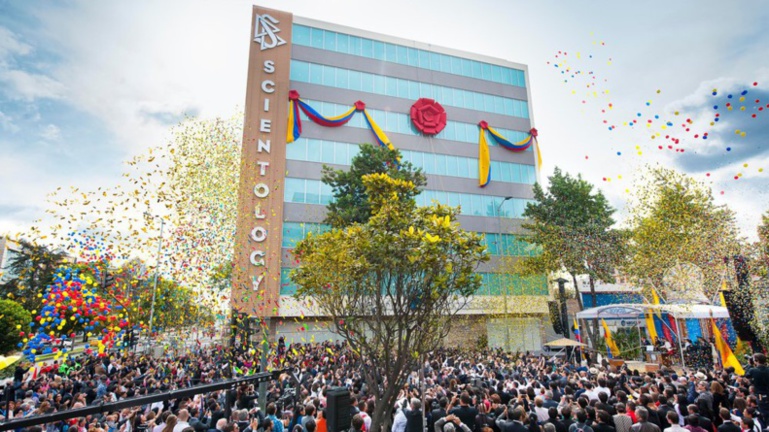
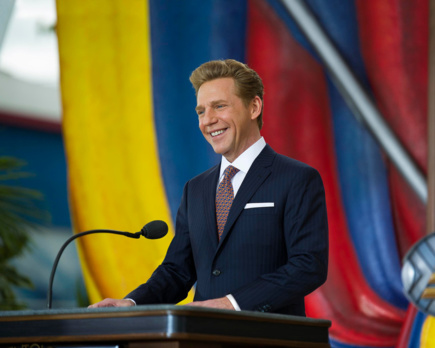
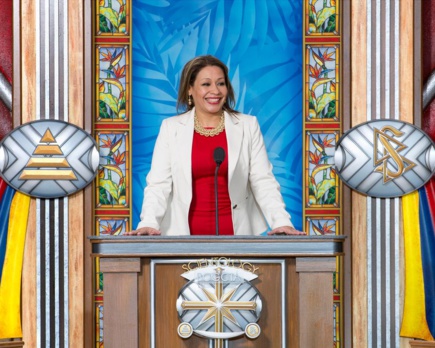
Sandra Rincon, conseillère du Ministre de l'intégration sociale, a ensuite pris la parole, déclarant : "Cette Eglise idéale représente un phare pour la paix au milieu d'une mer de confusion. (...) Les activités d'amélioration sociale dans lesquelles vous vous engagez n'ont pas de prix et je dois dire que vous arrivez dans cette ville au meilleur moment possible".
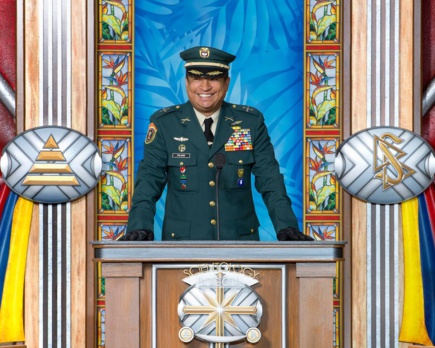
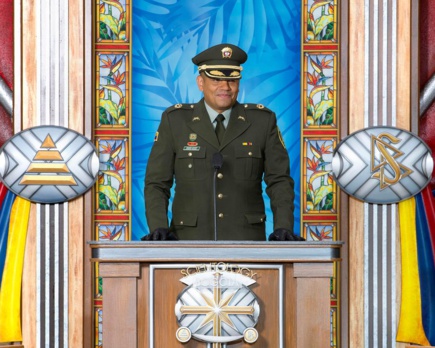
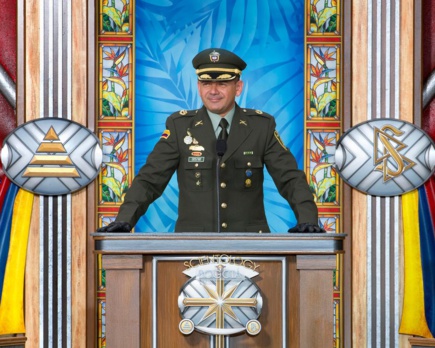
Vous trouverez plus de photos ici : http://www.scientology.org/david-miscavige/scientology-cuts-ribbon-on-first-south-american-ideal-org-bogota-colombia.html#
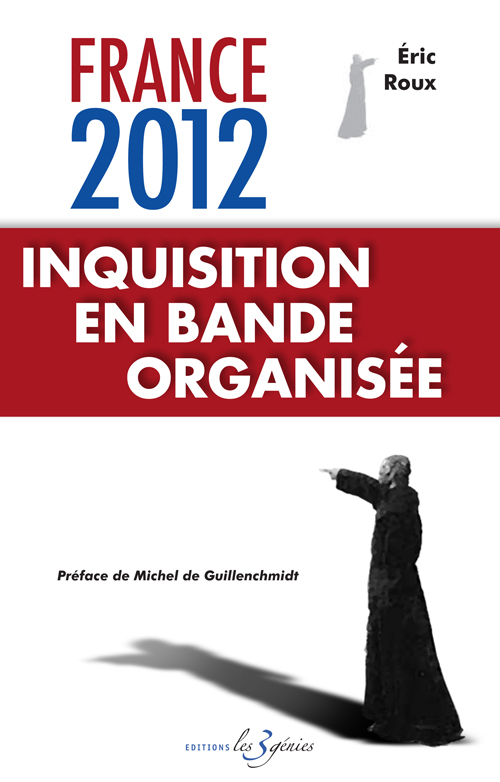
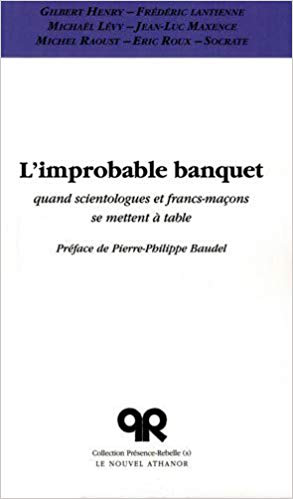
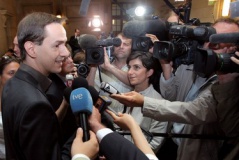

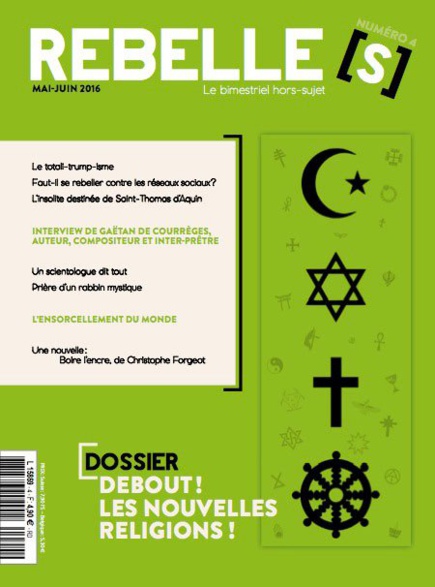
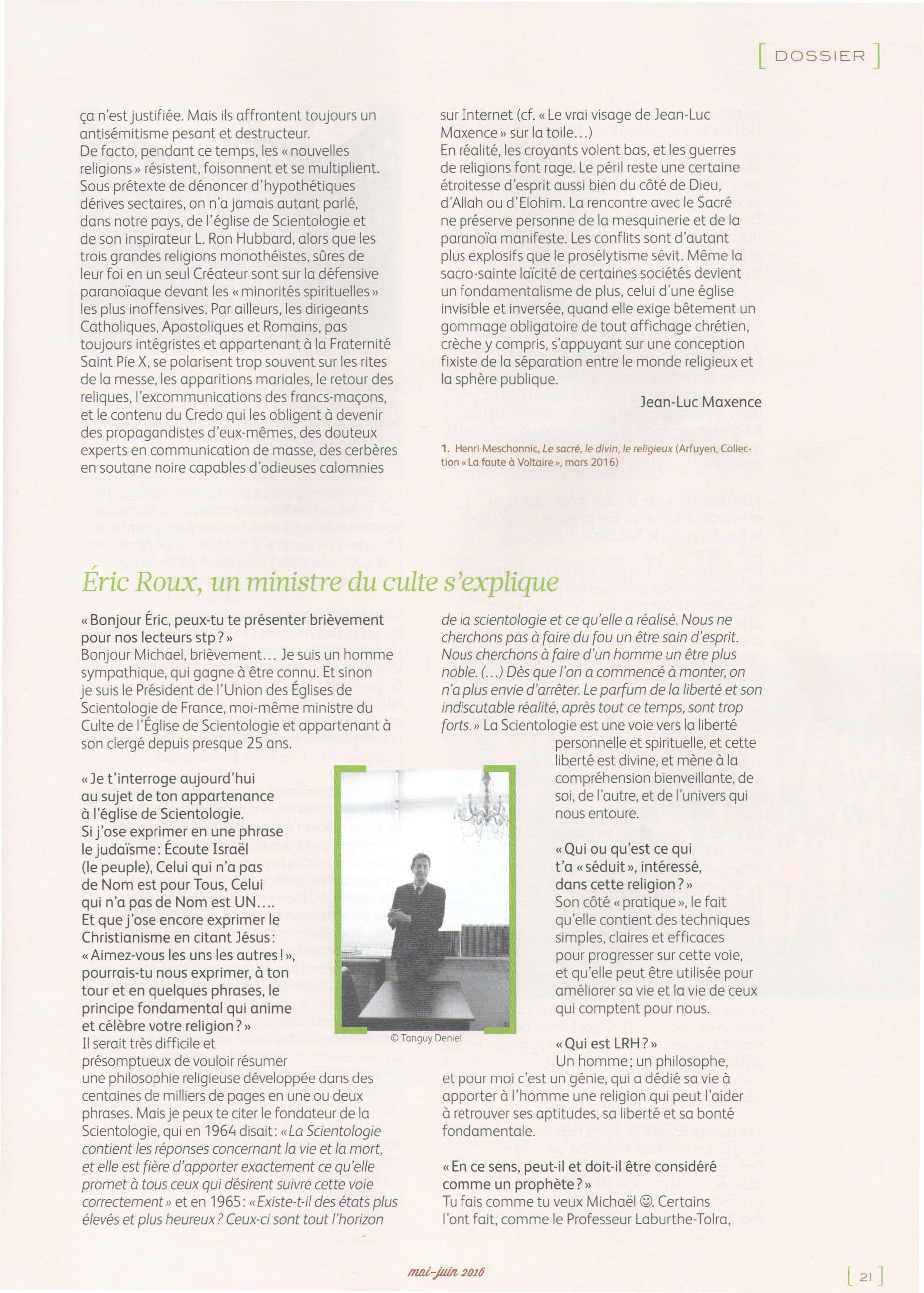
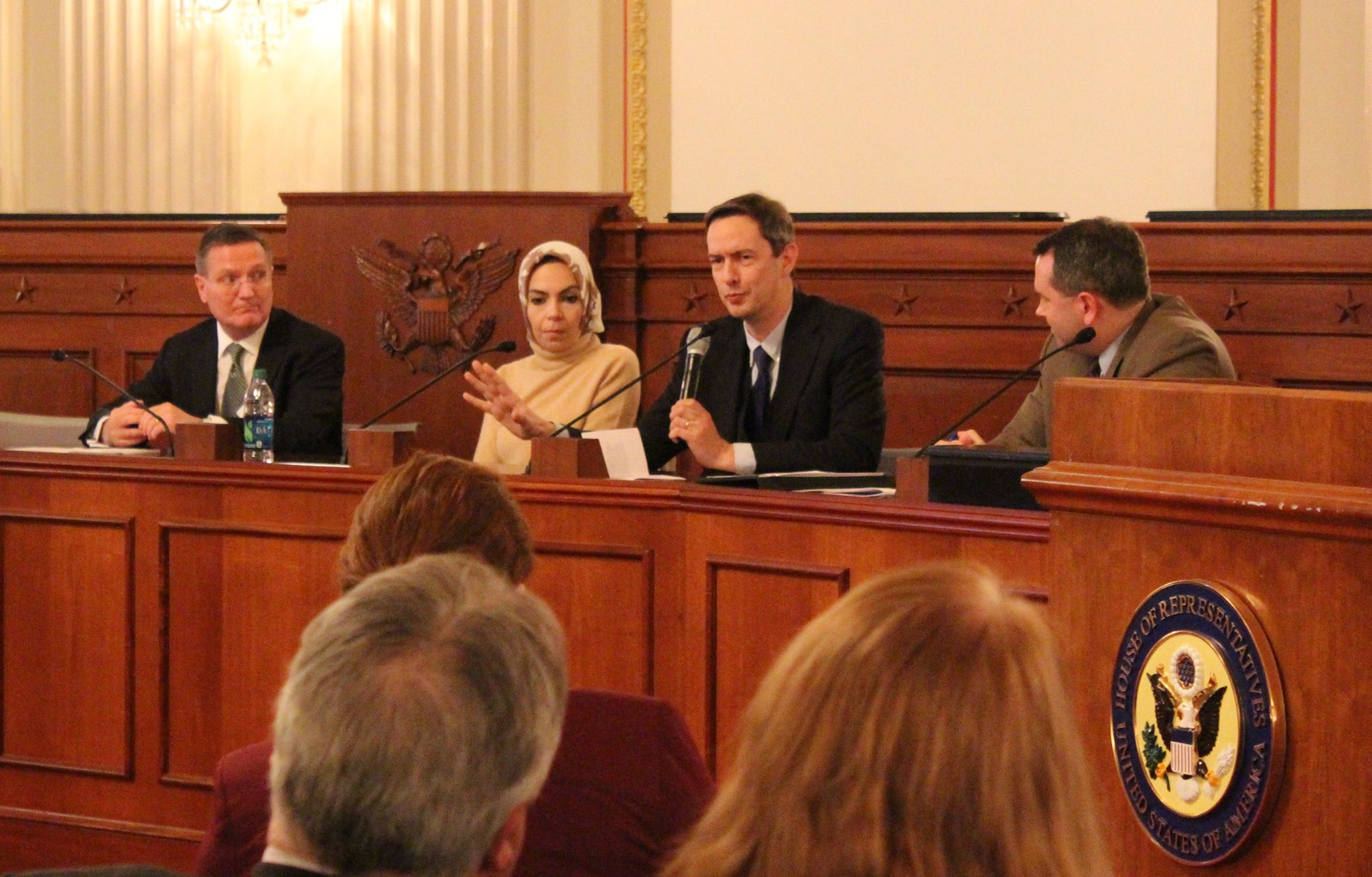
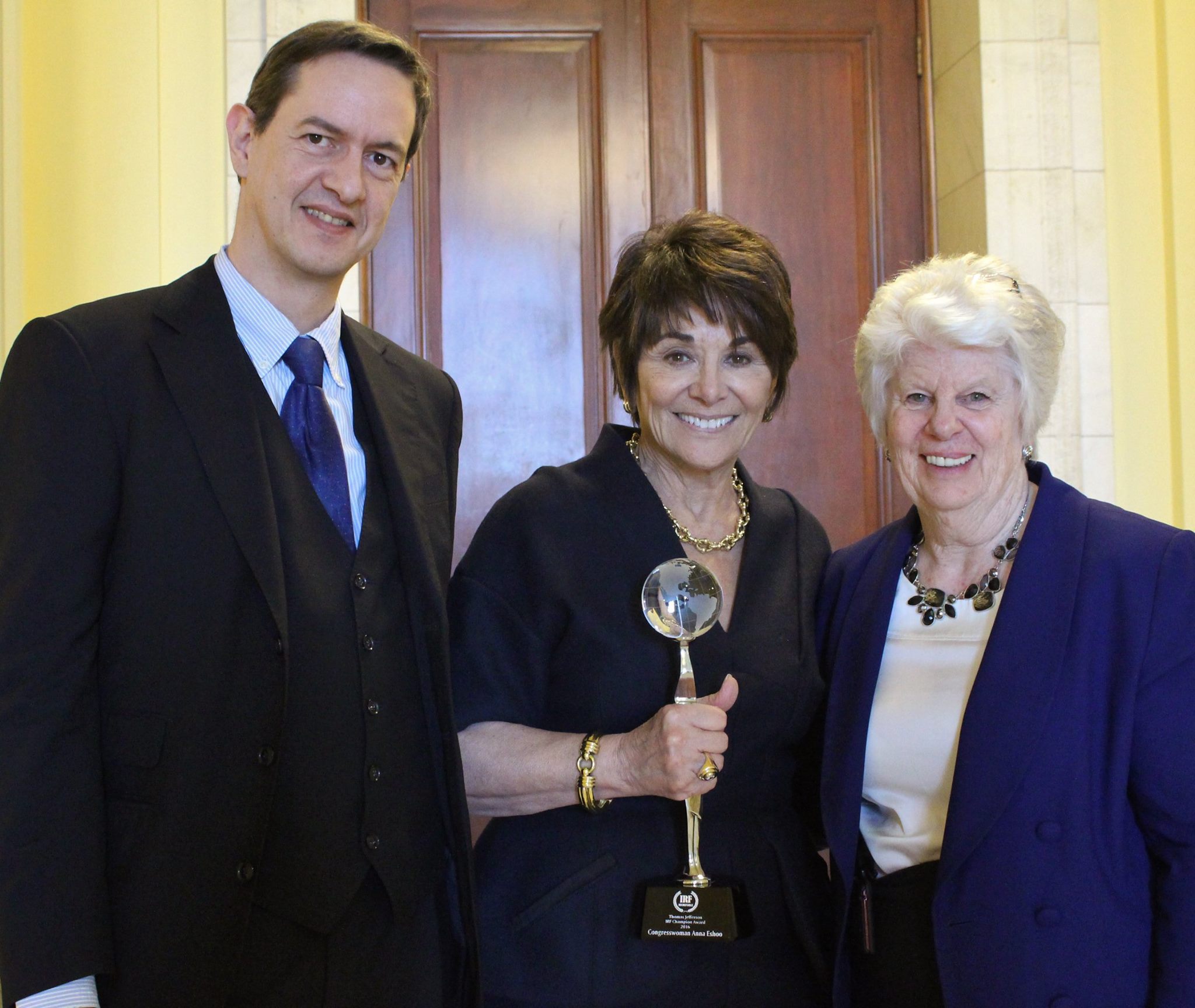
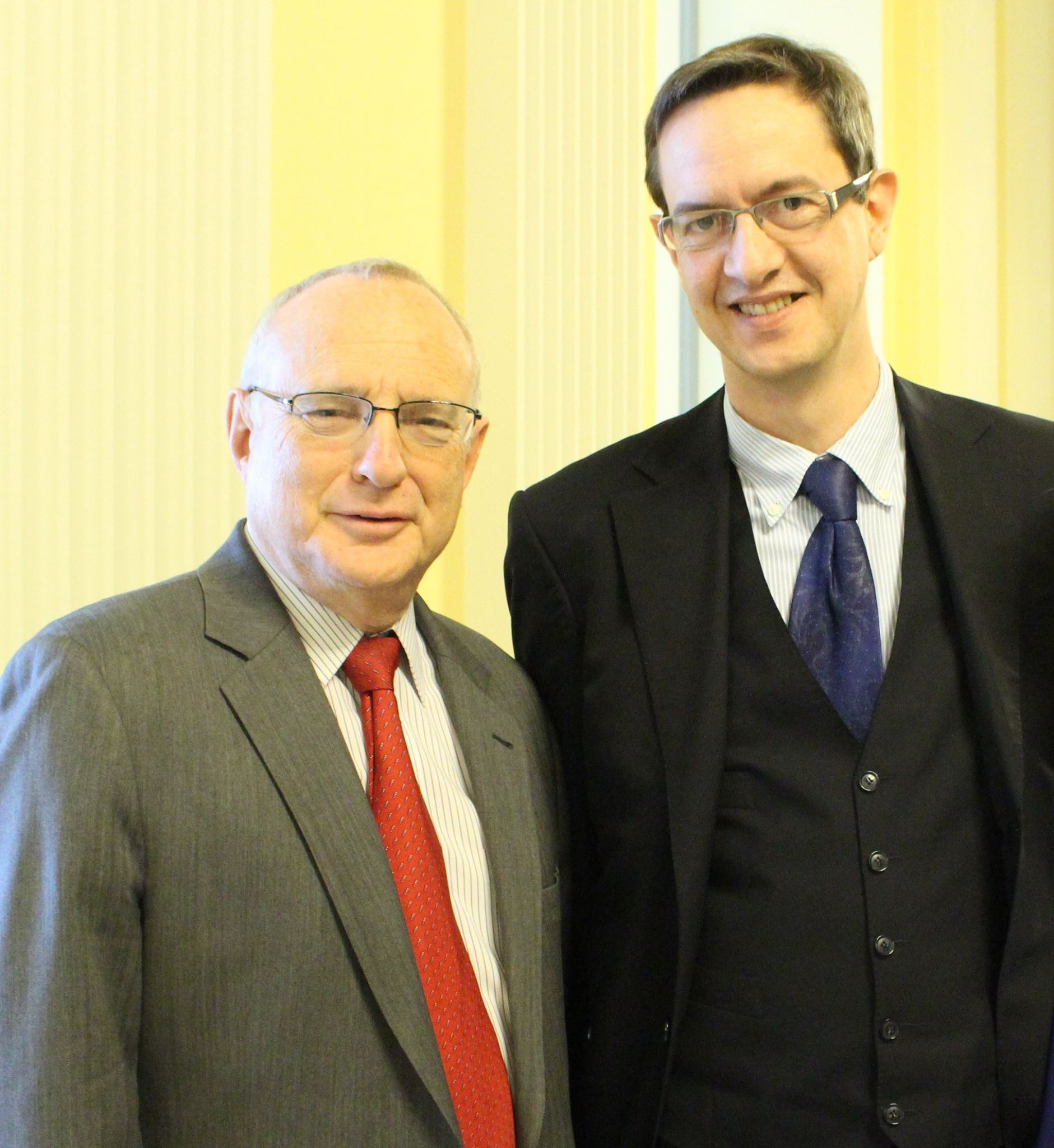






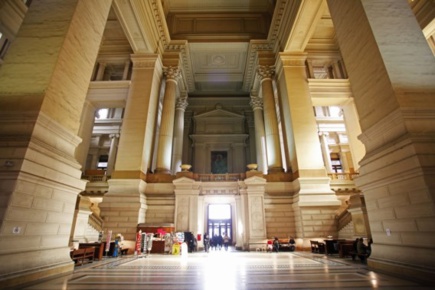
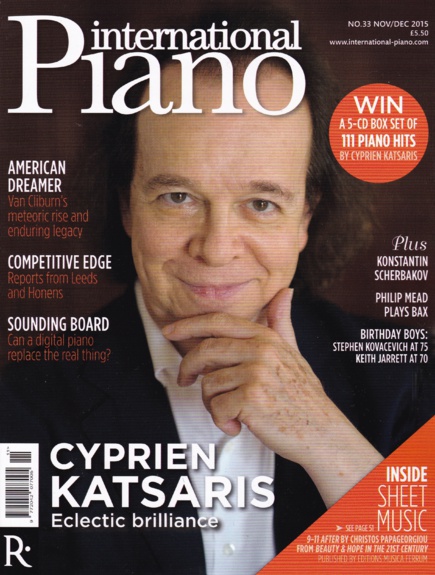
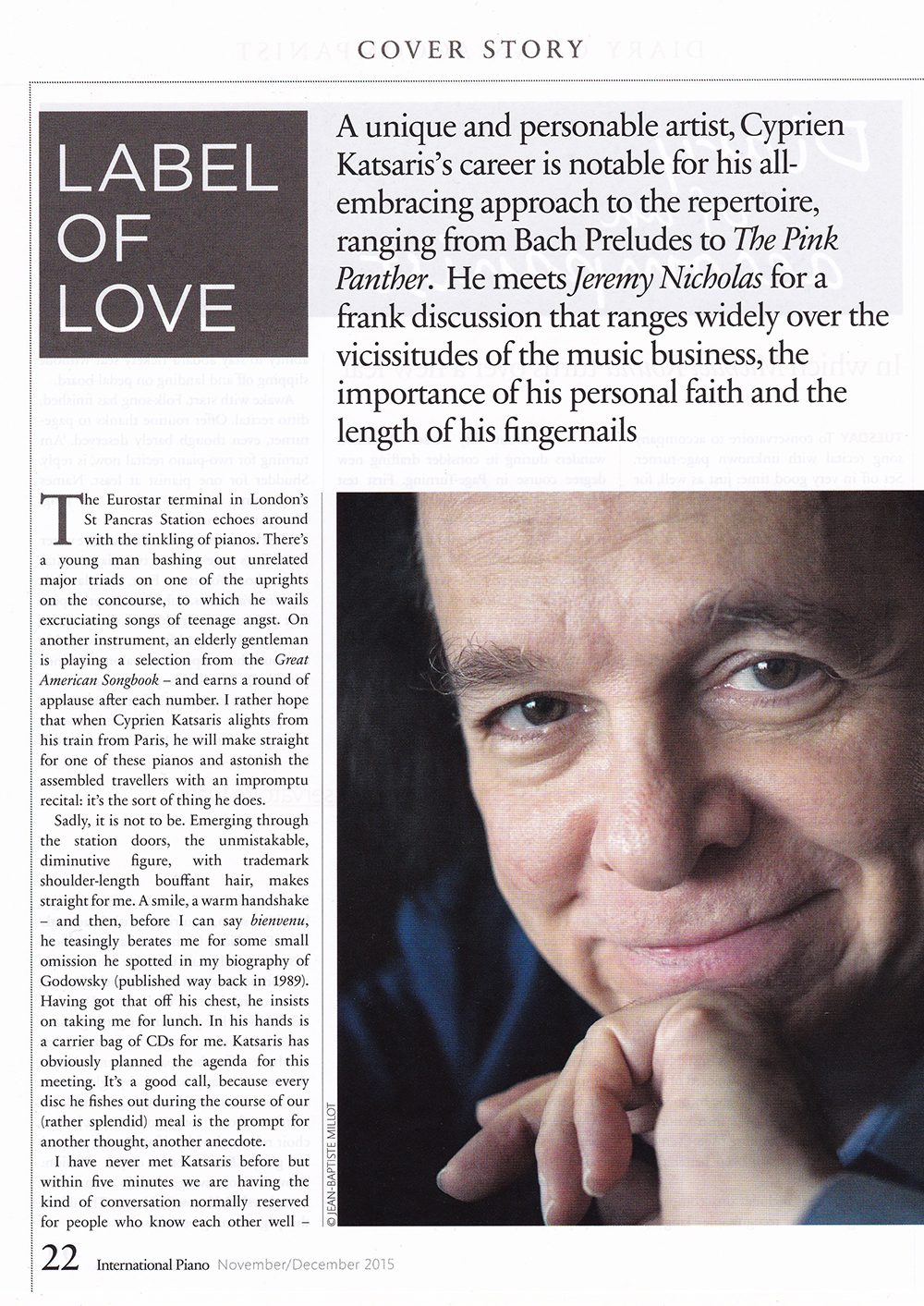
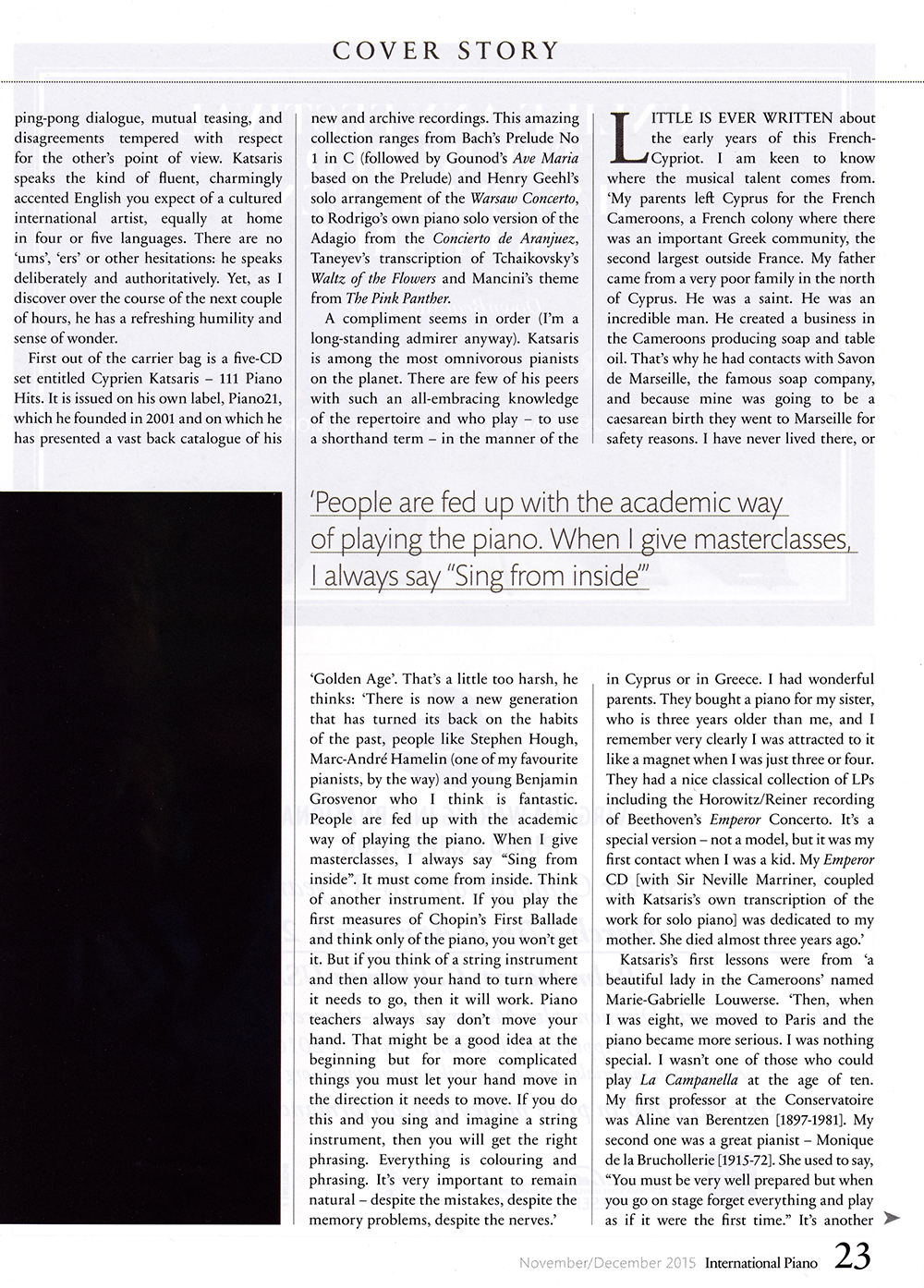
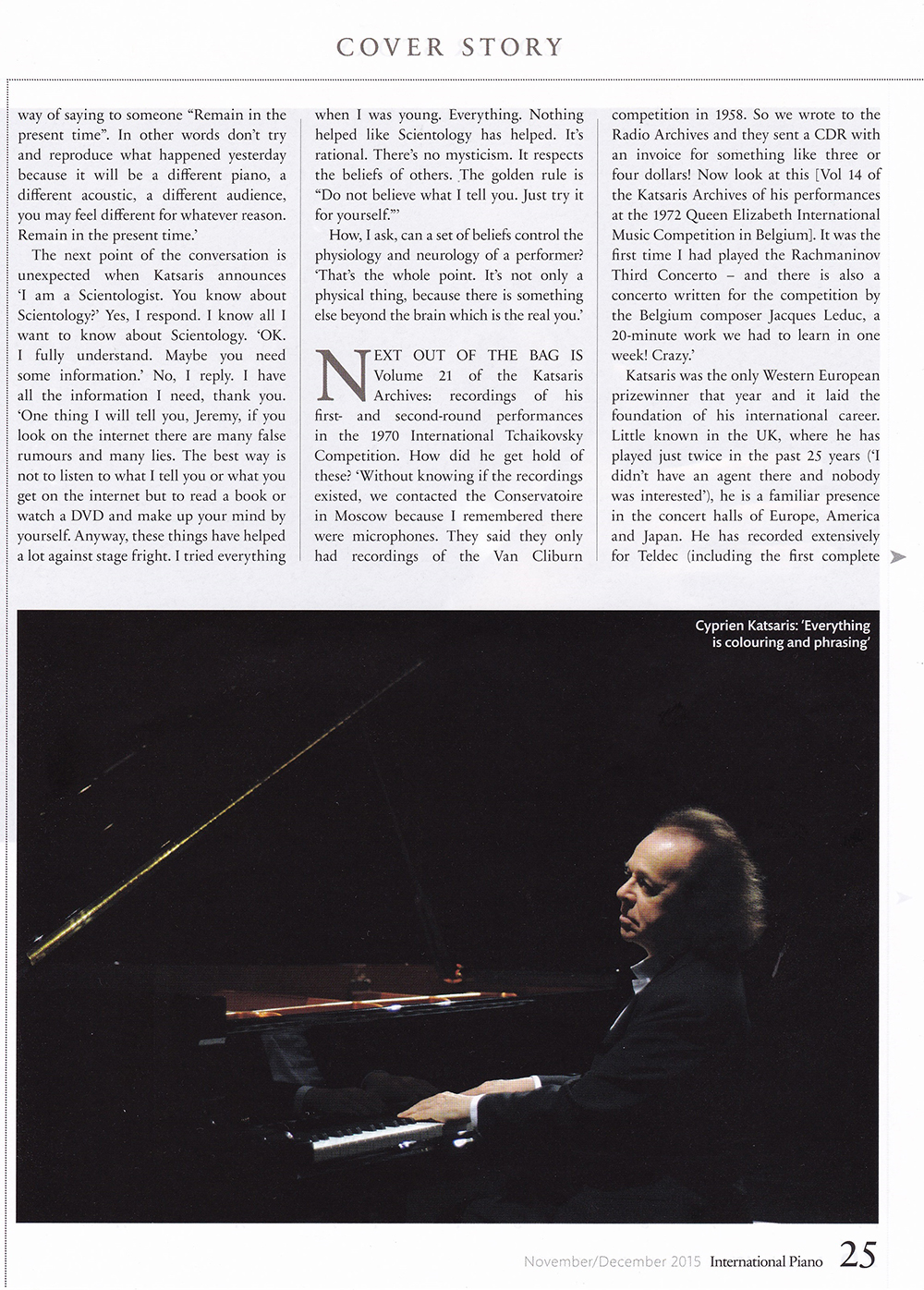
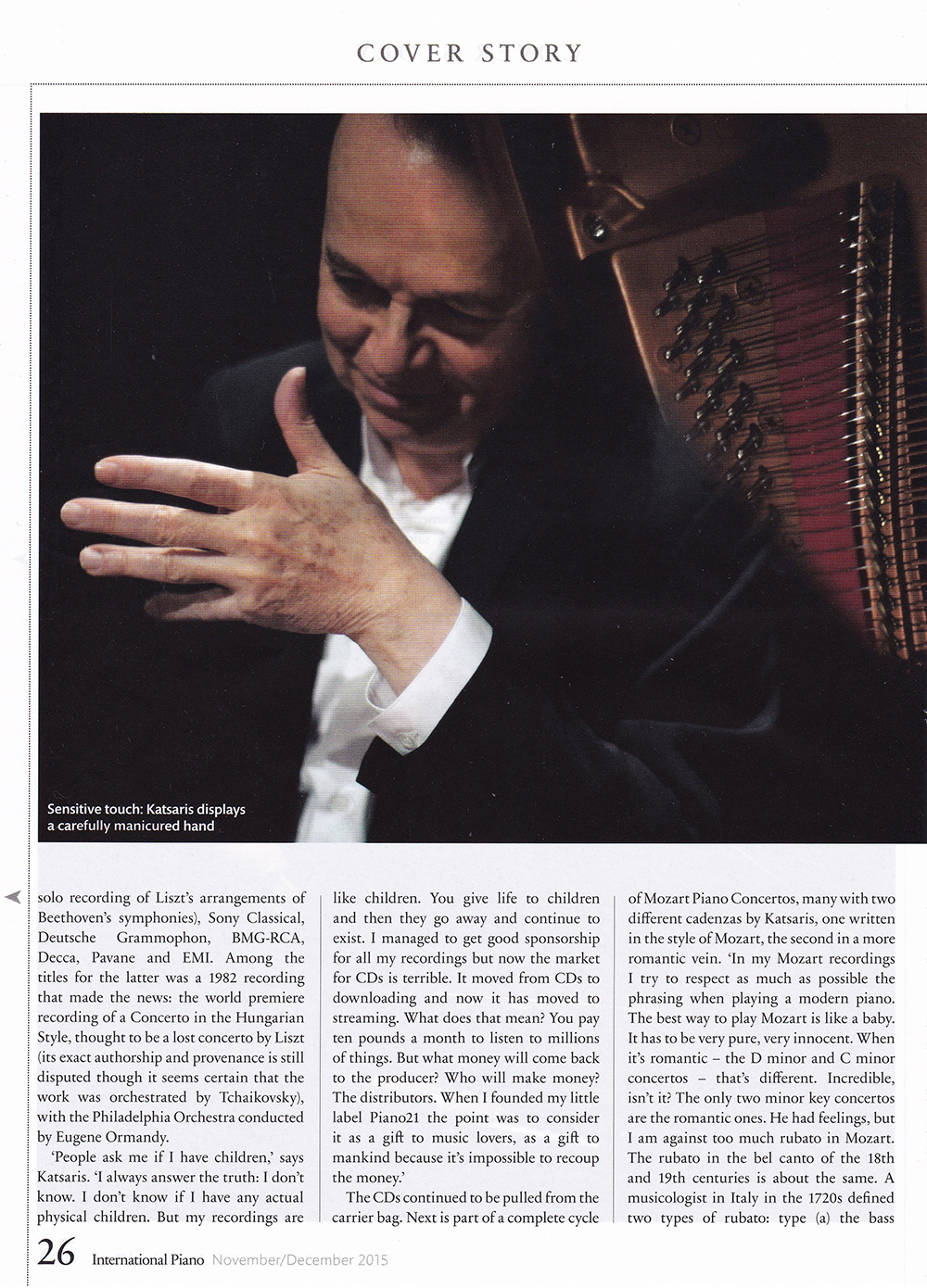
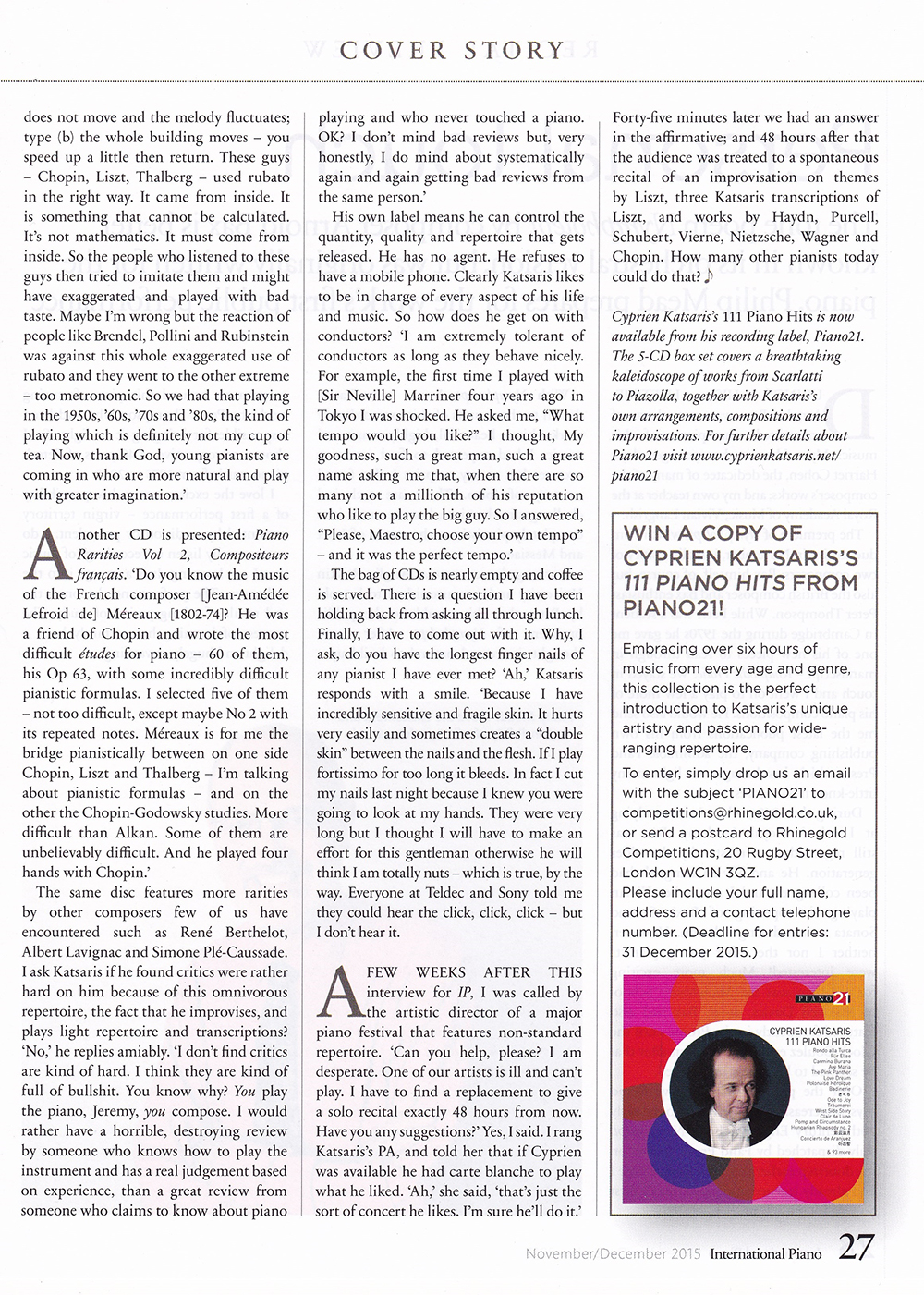
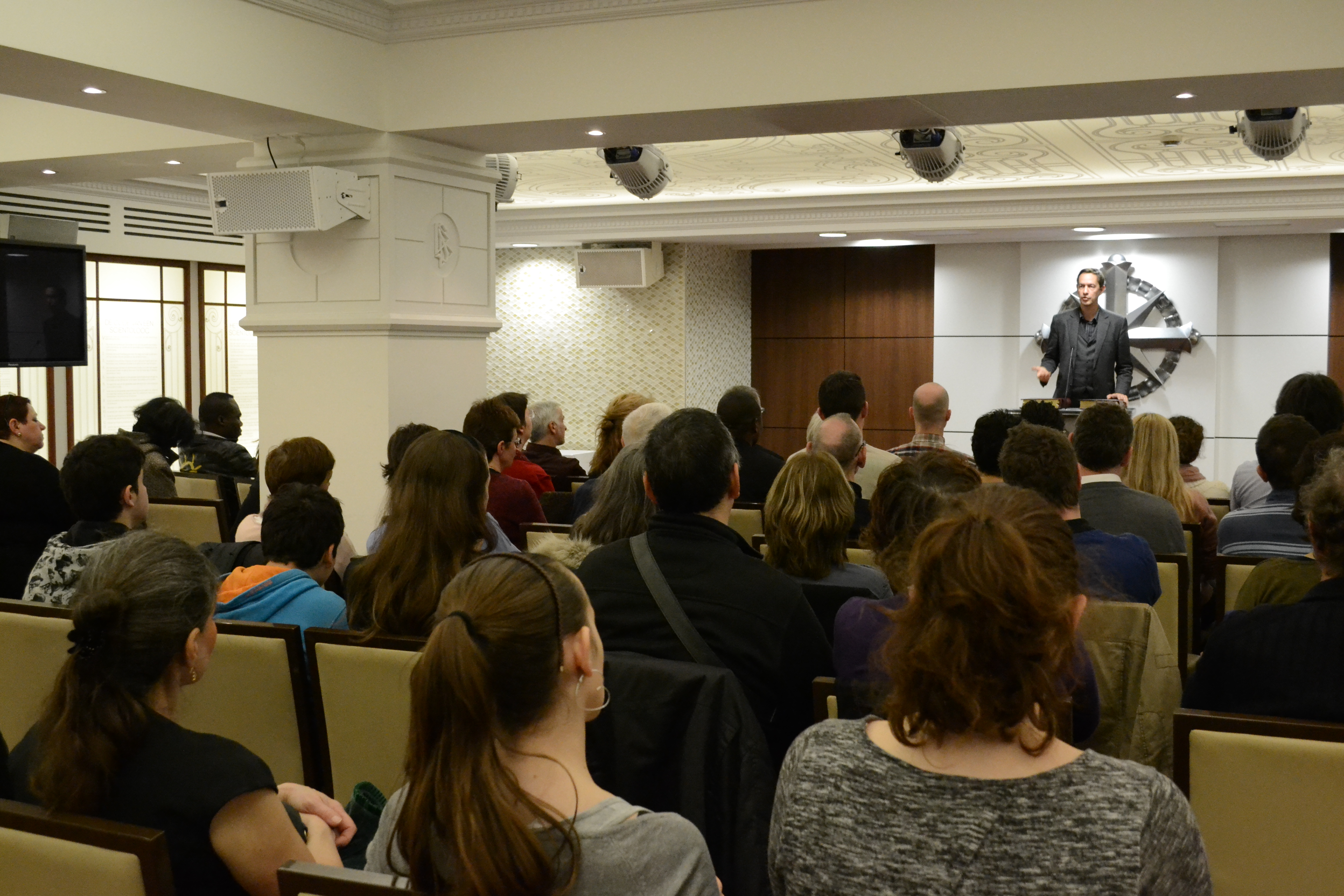
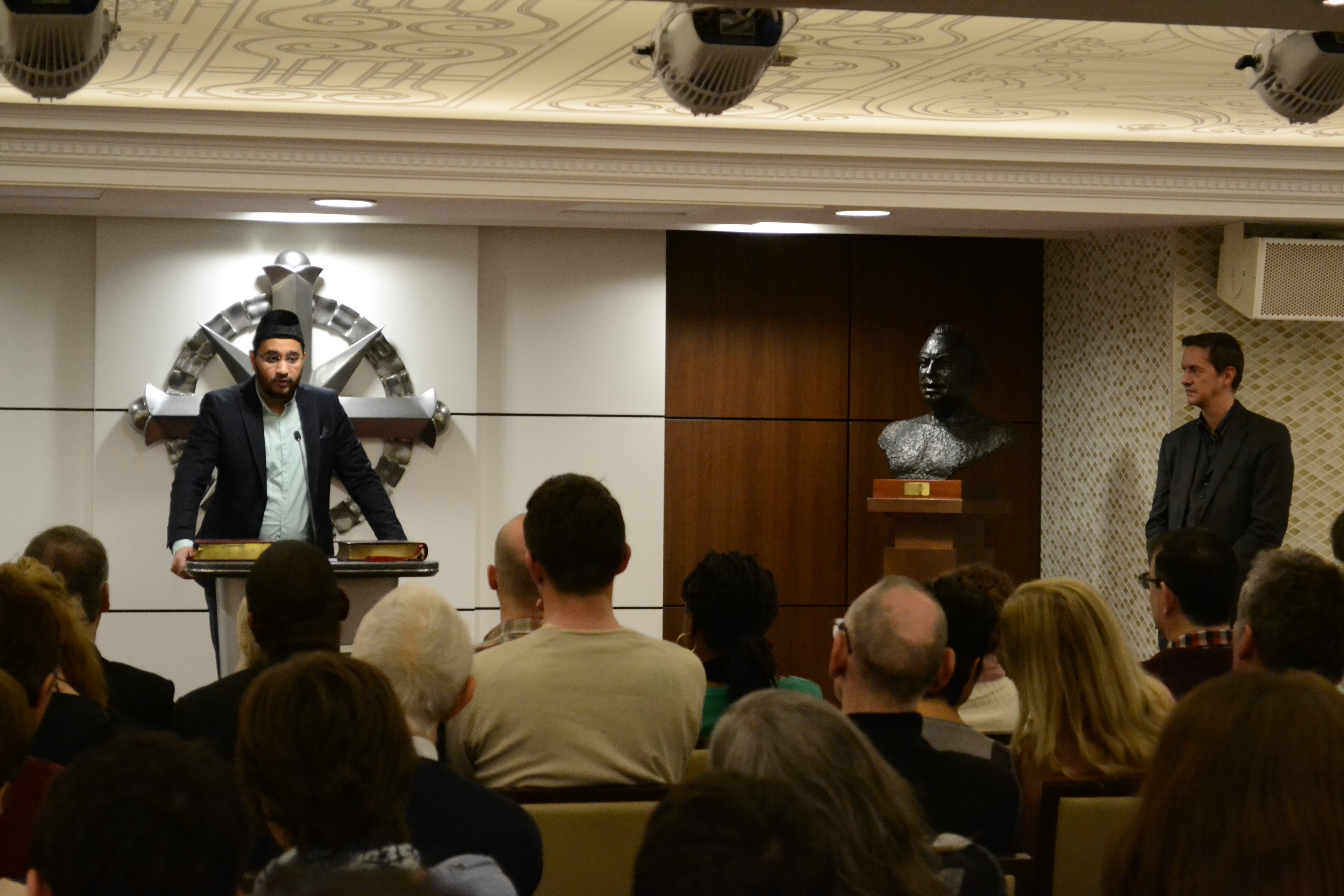

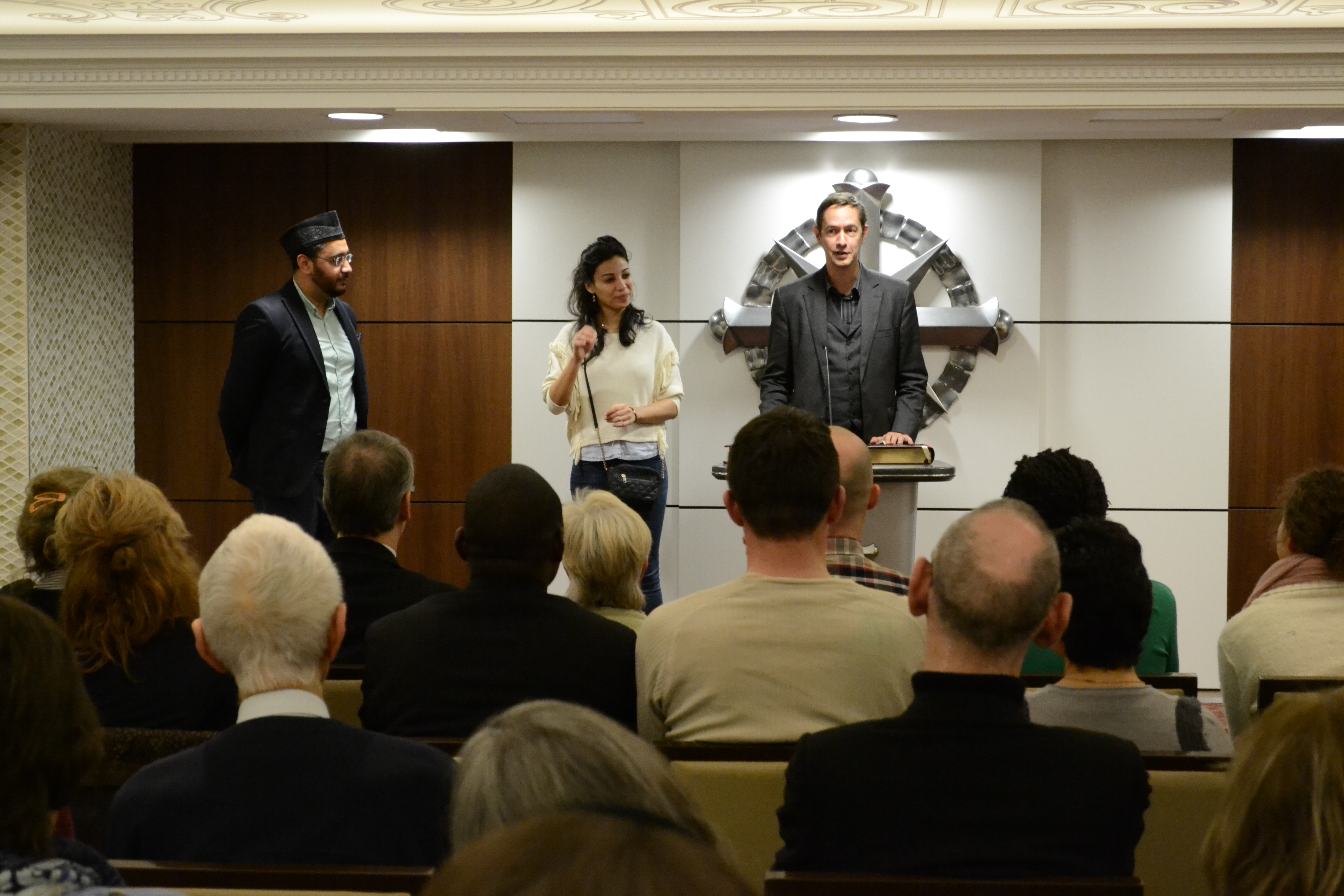
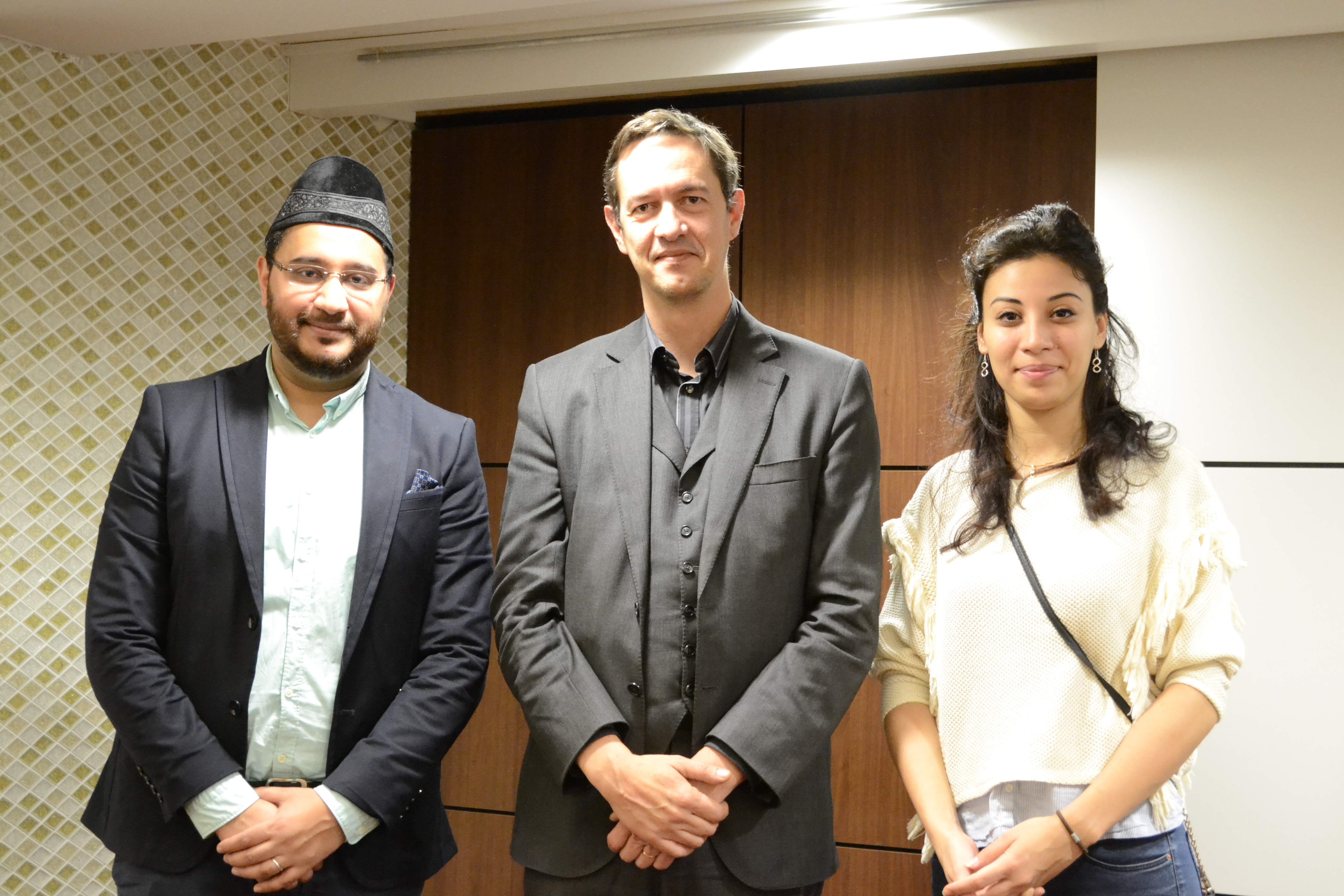
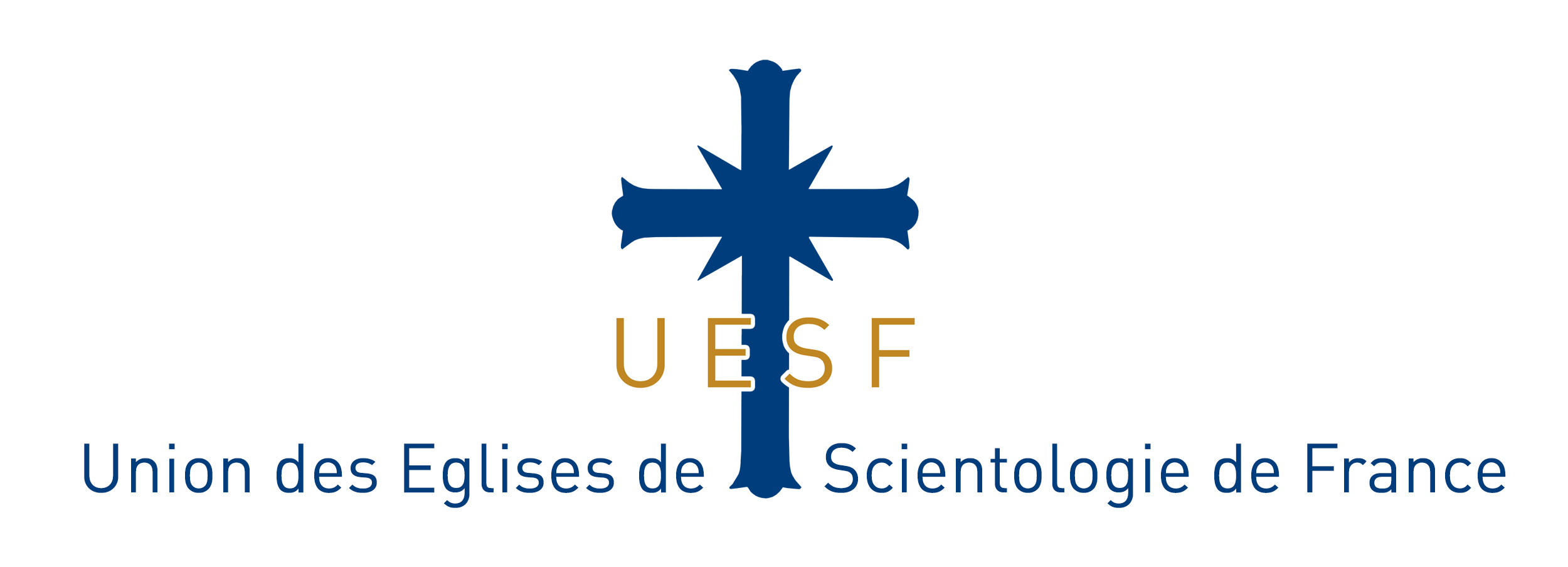
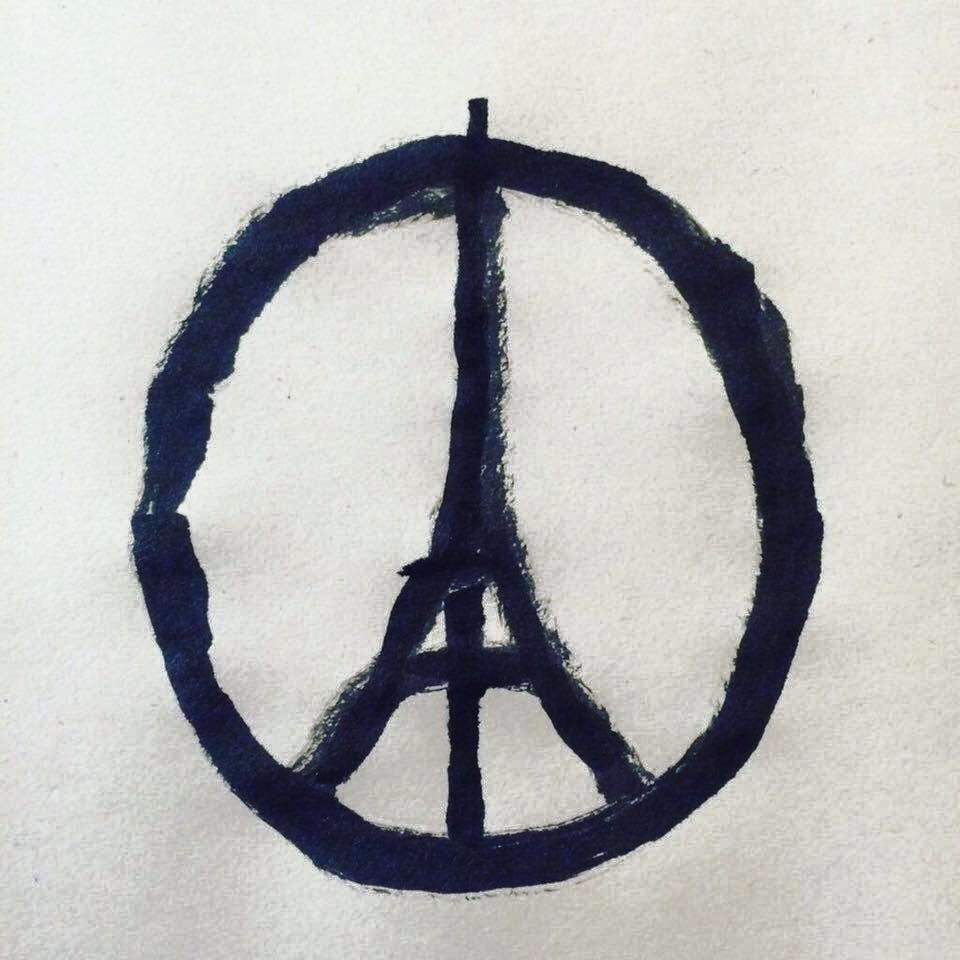
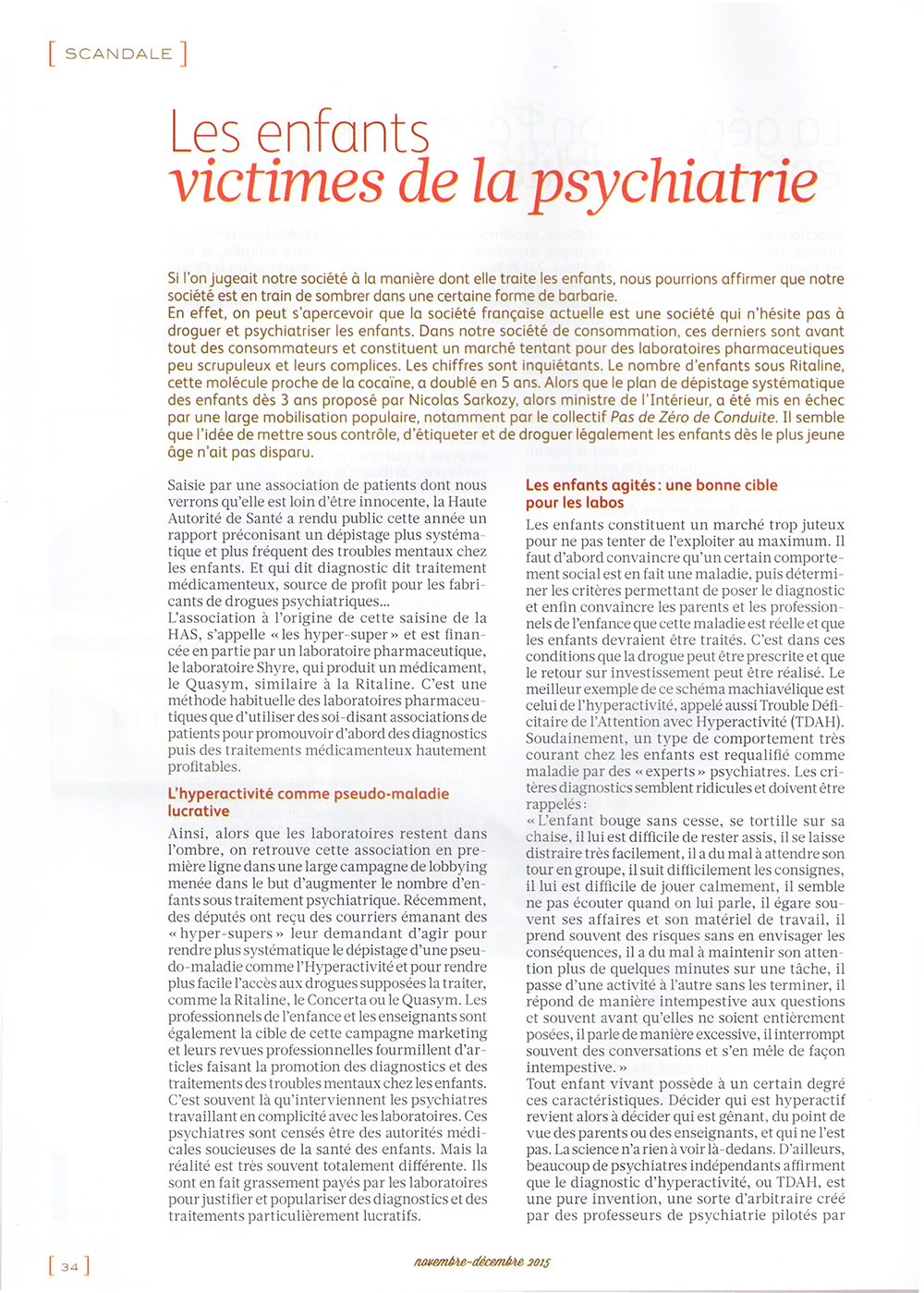

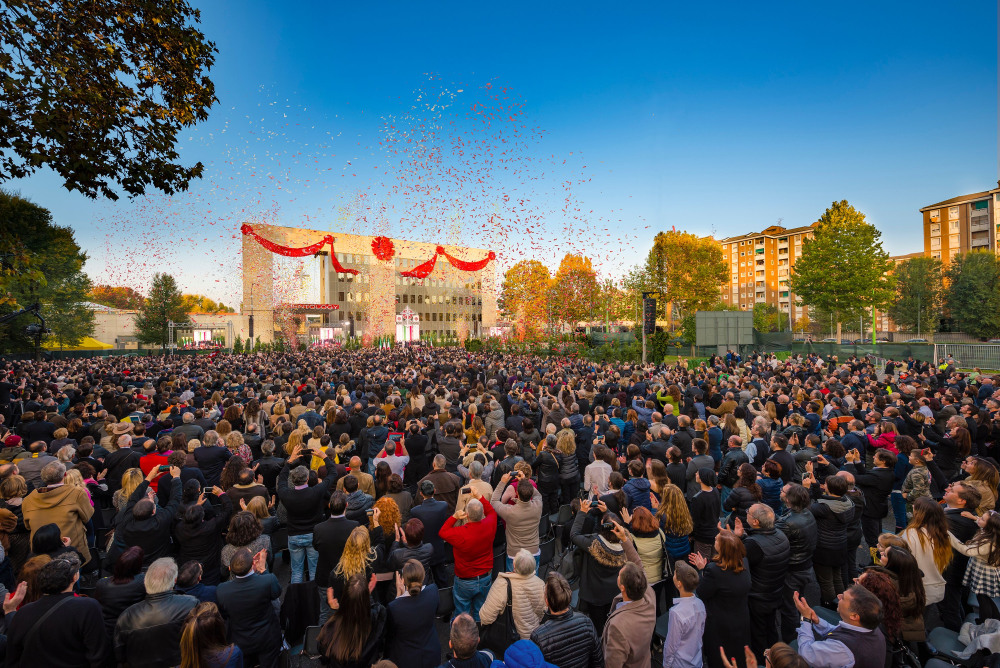

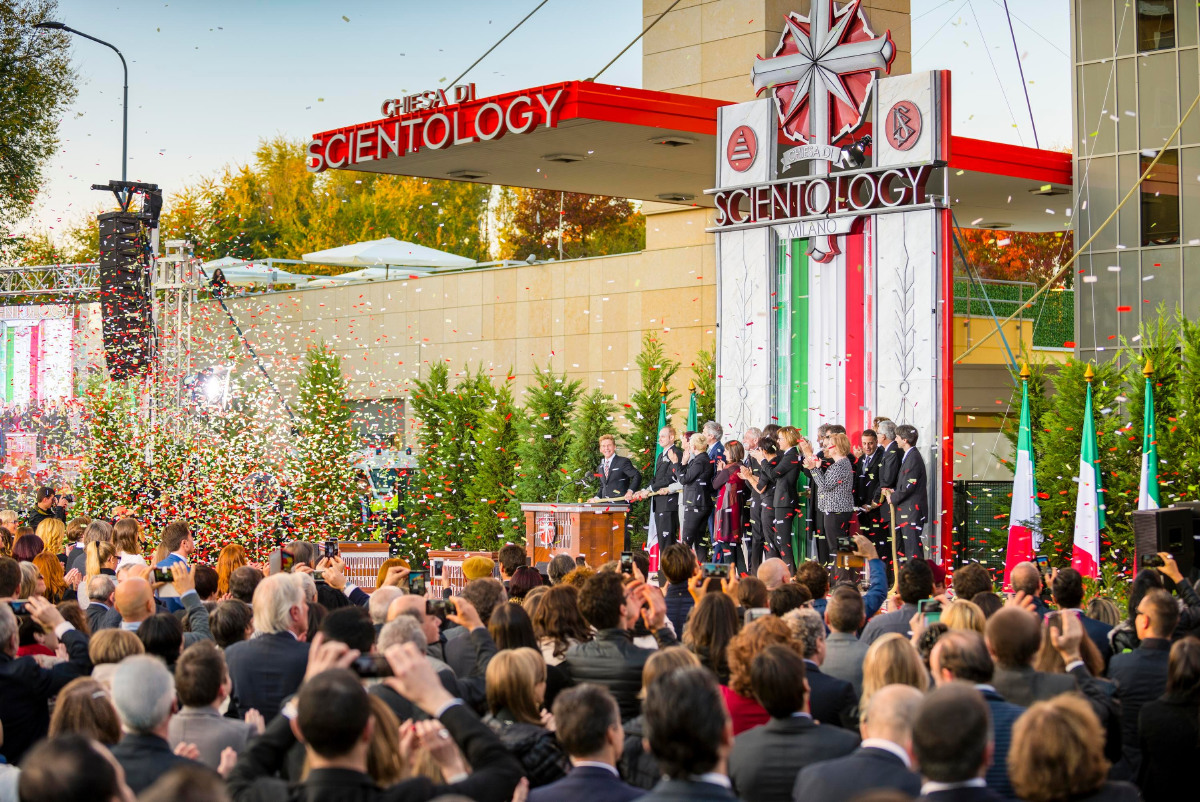
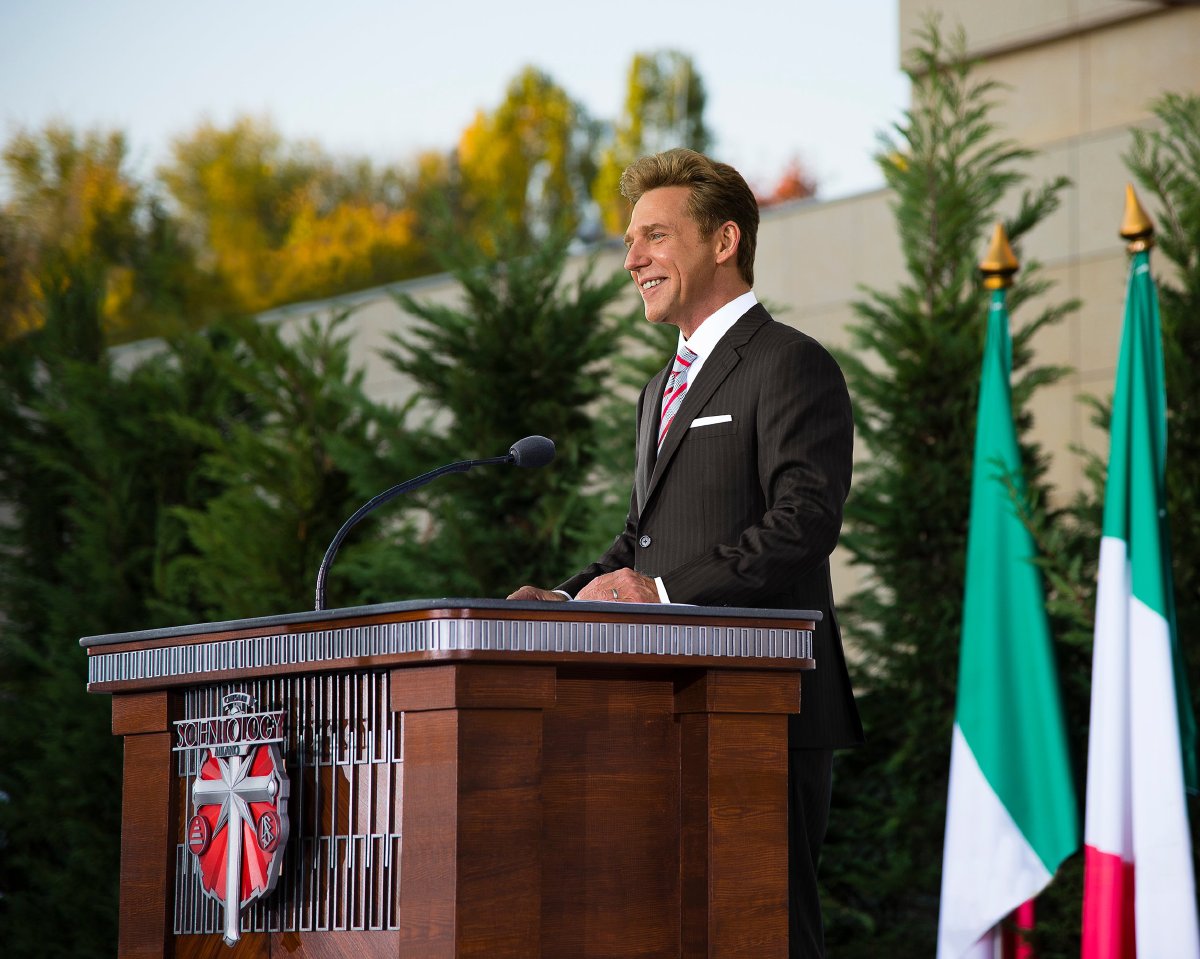

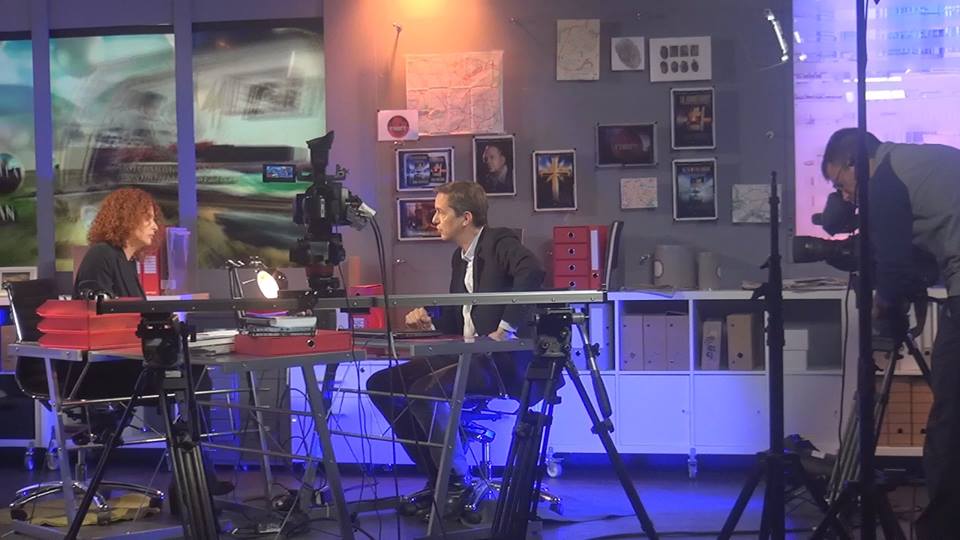
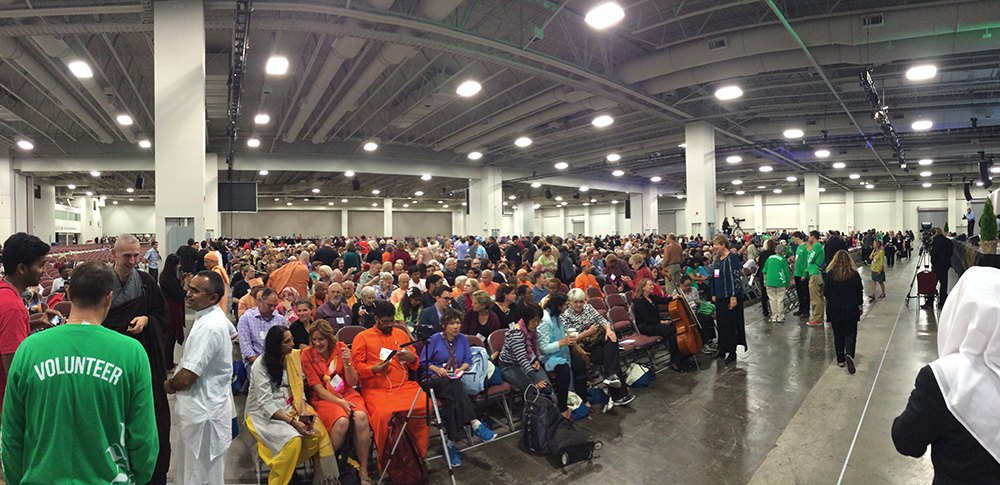
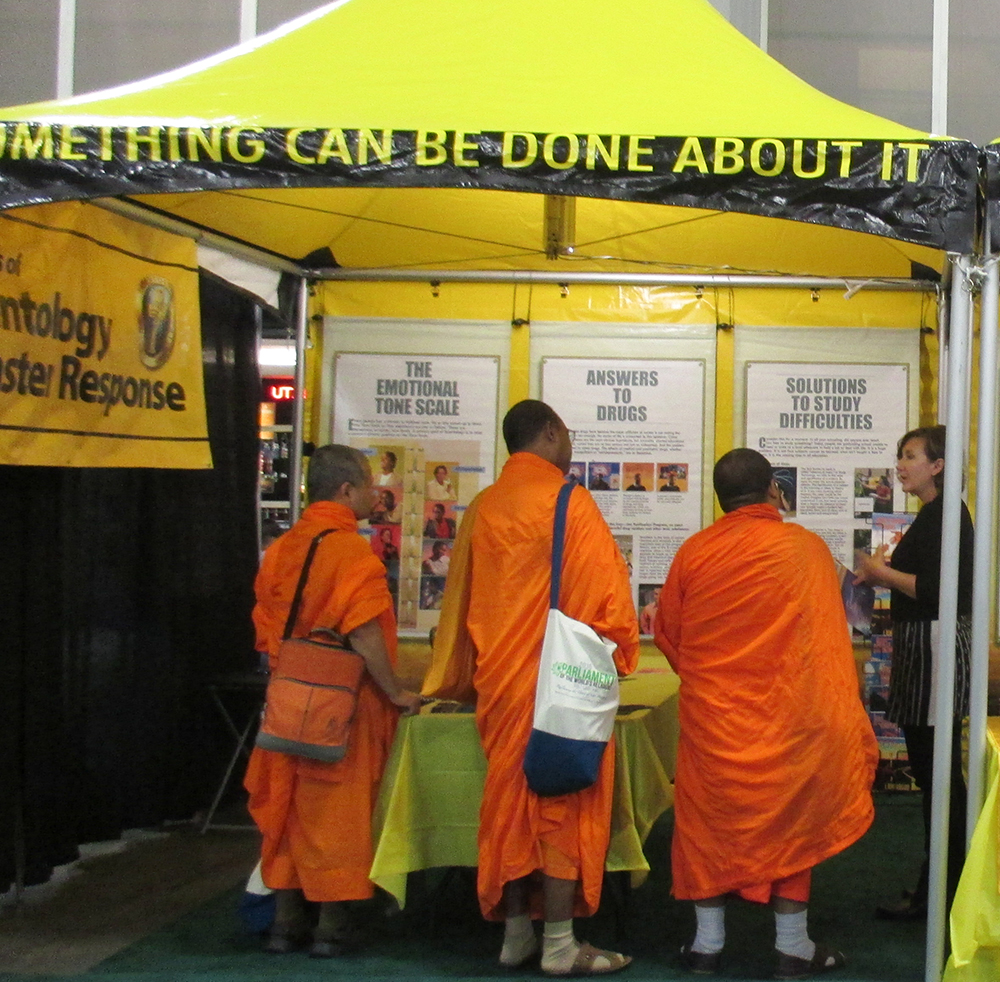
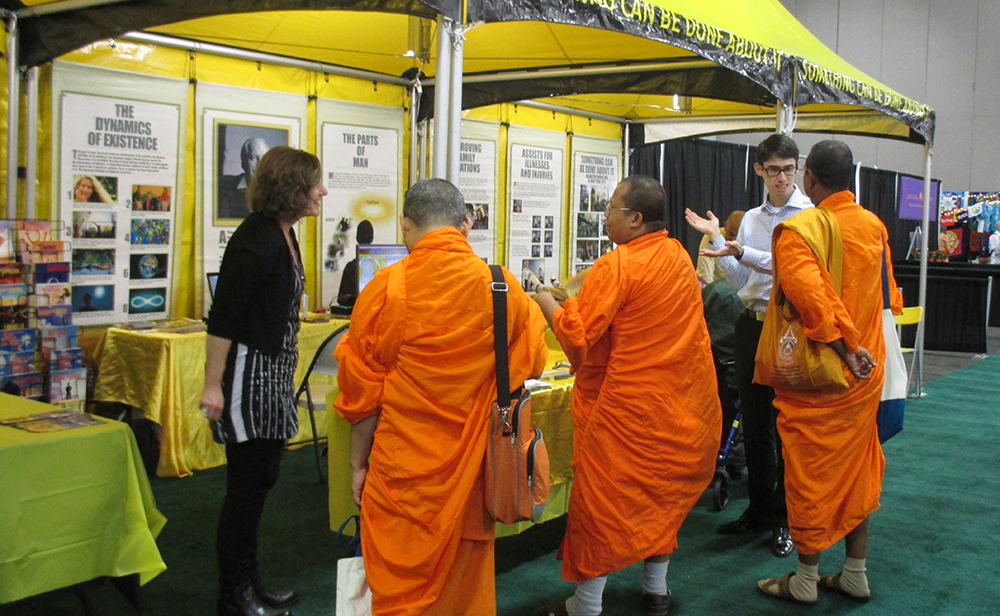
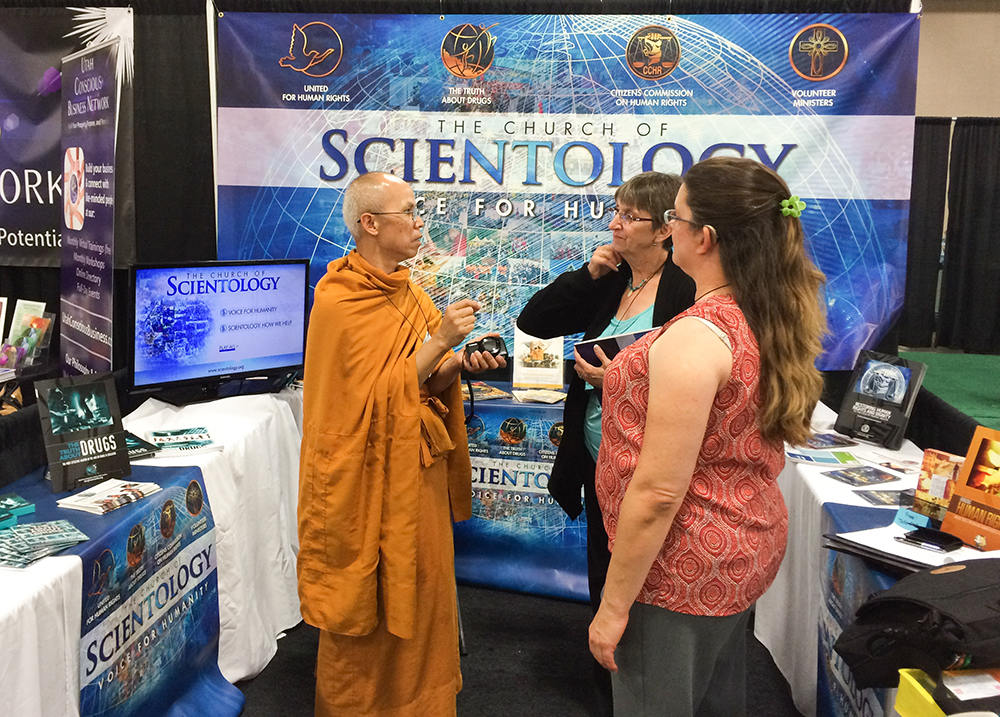
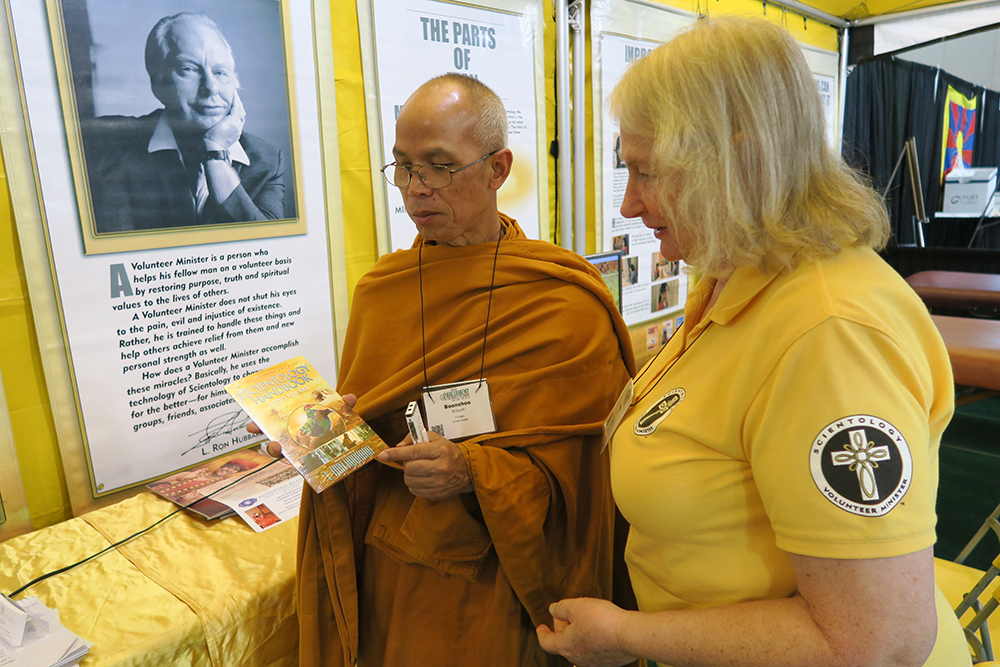
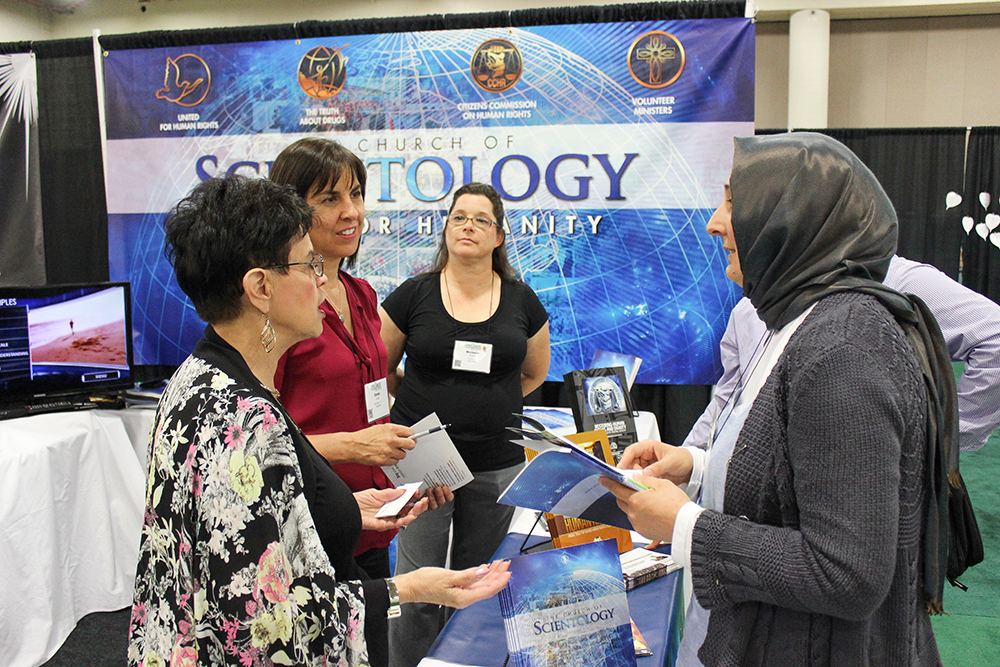
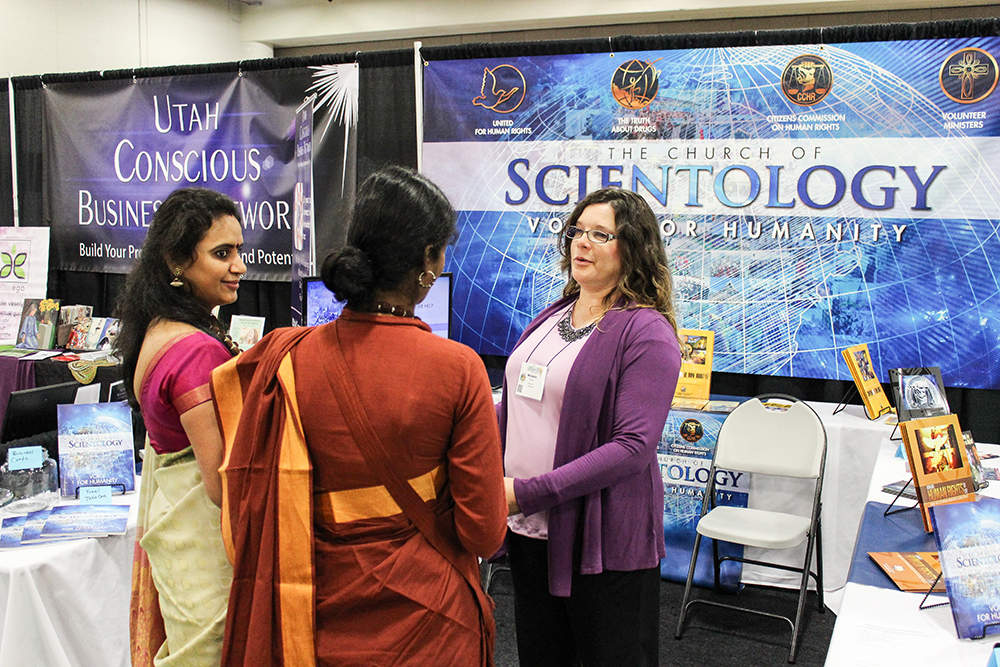
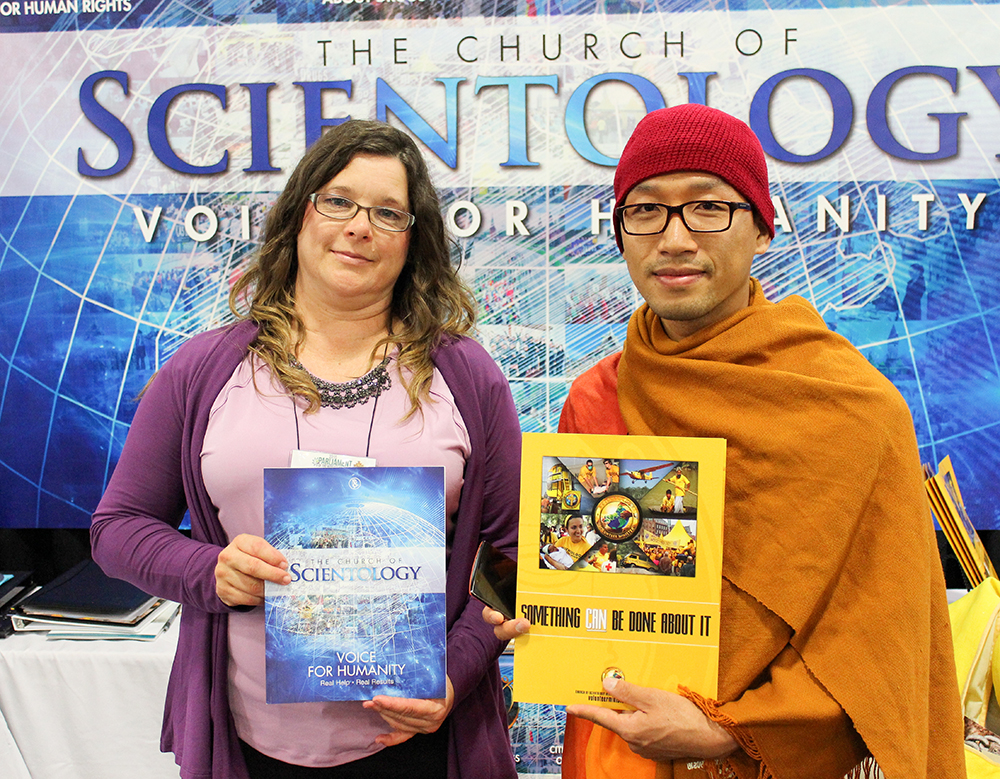
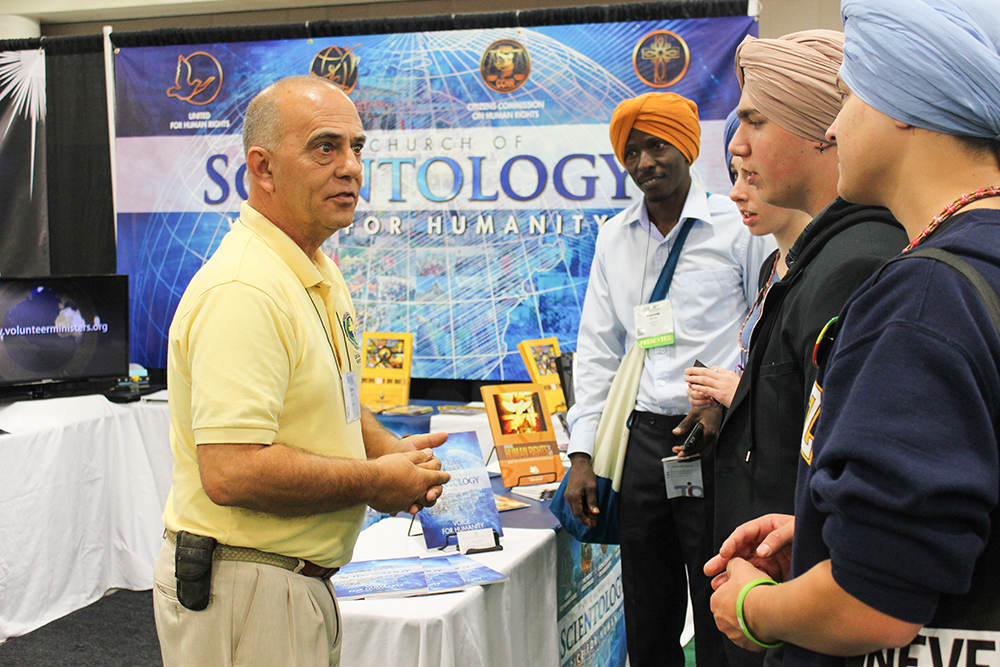
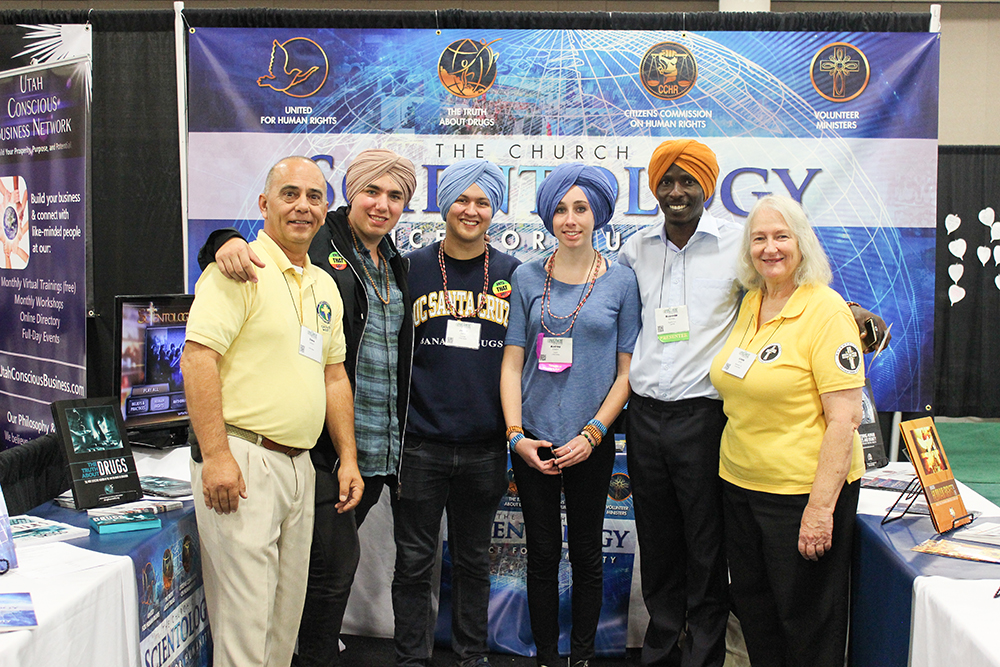
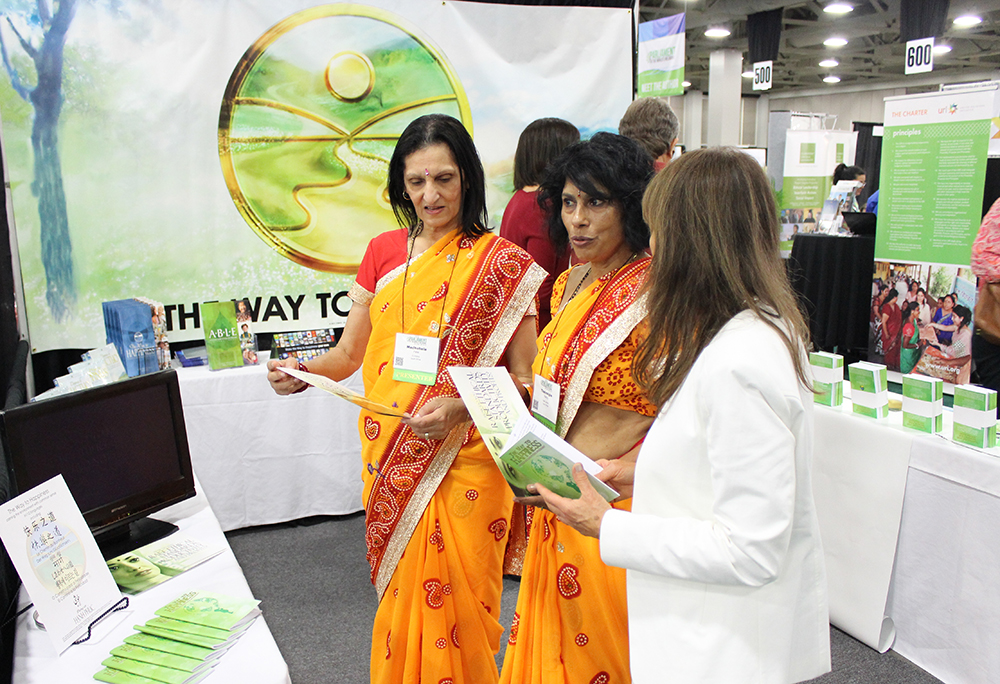
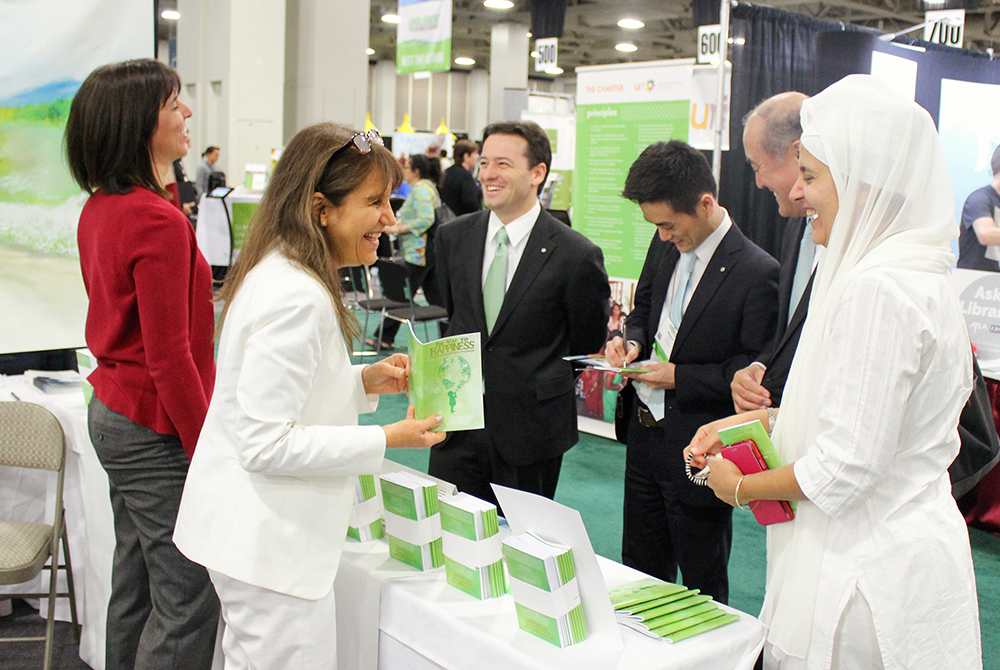
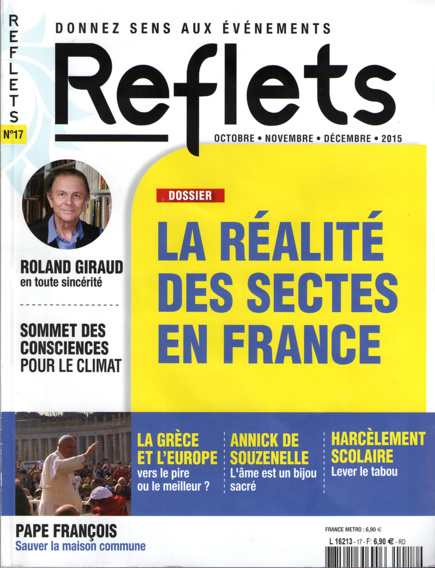
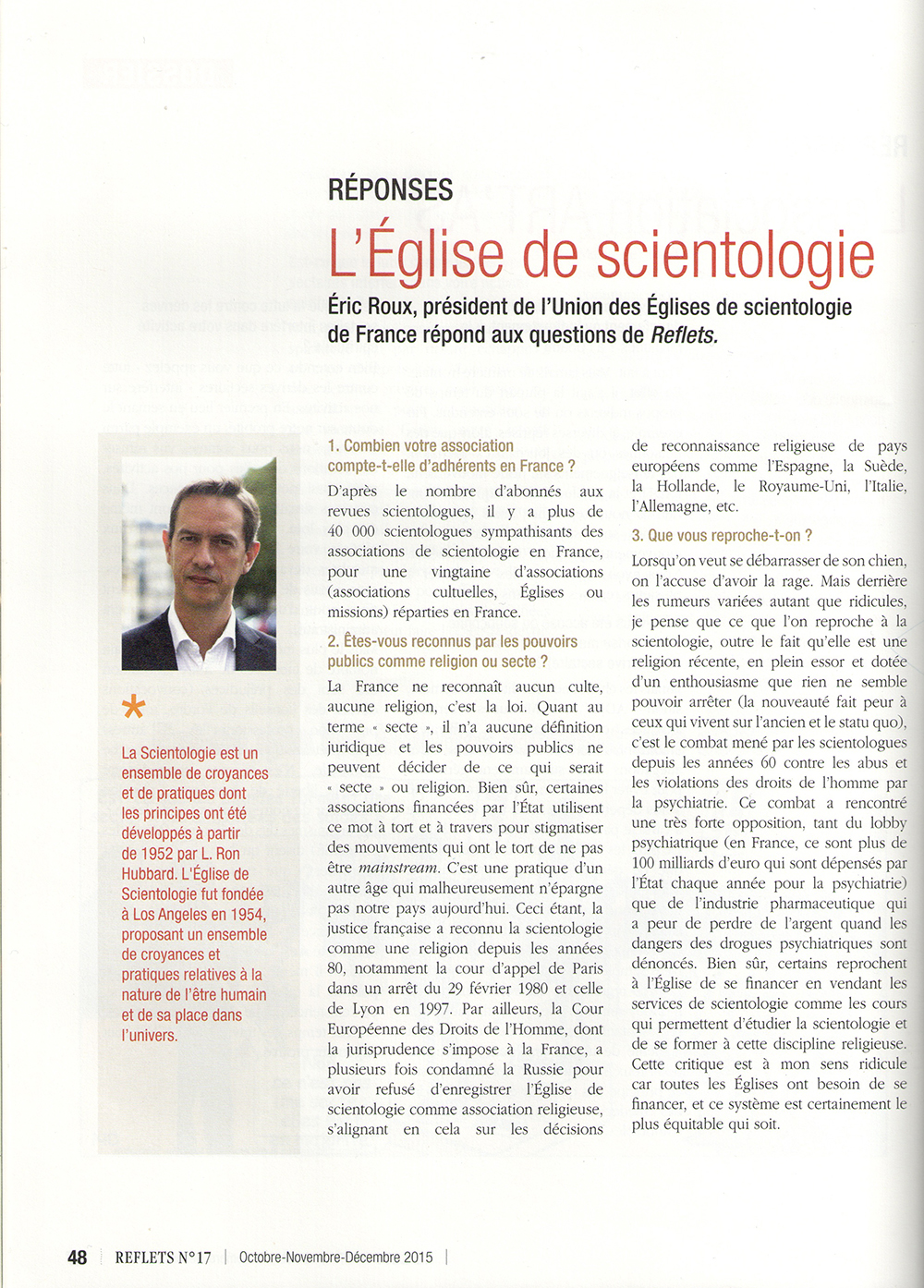
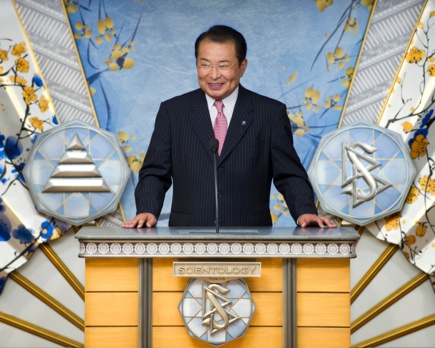
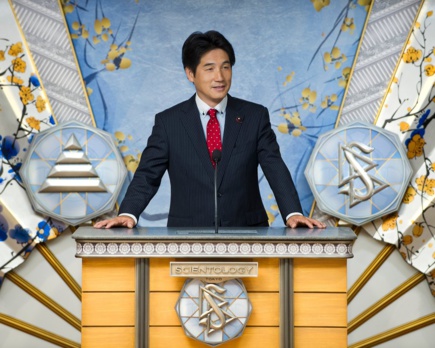
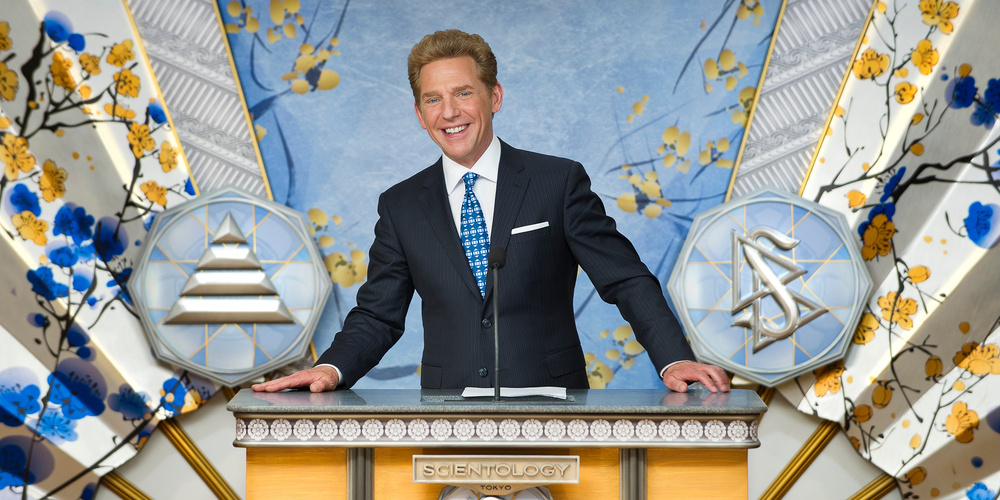
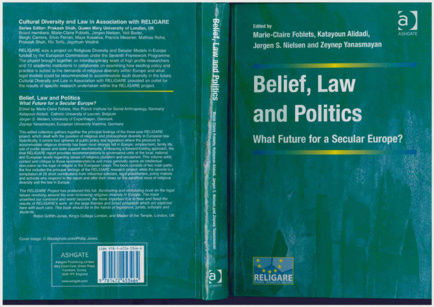
Télévisions, plateaux et interviews
Commentaires (0) | Permalien